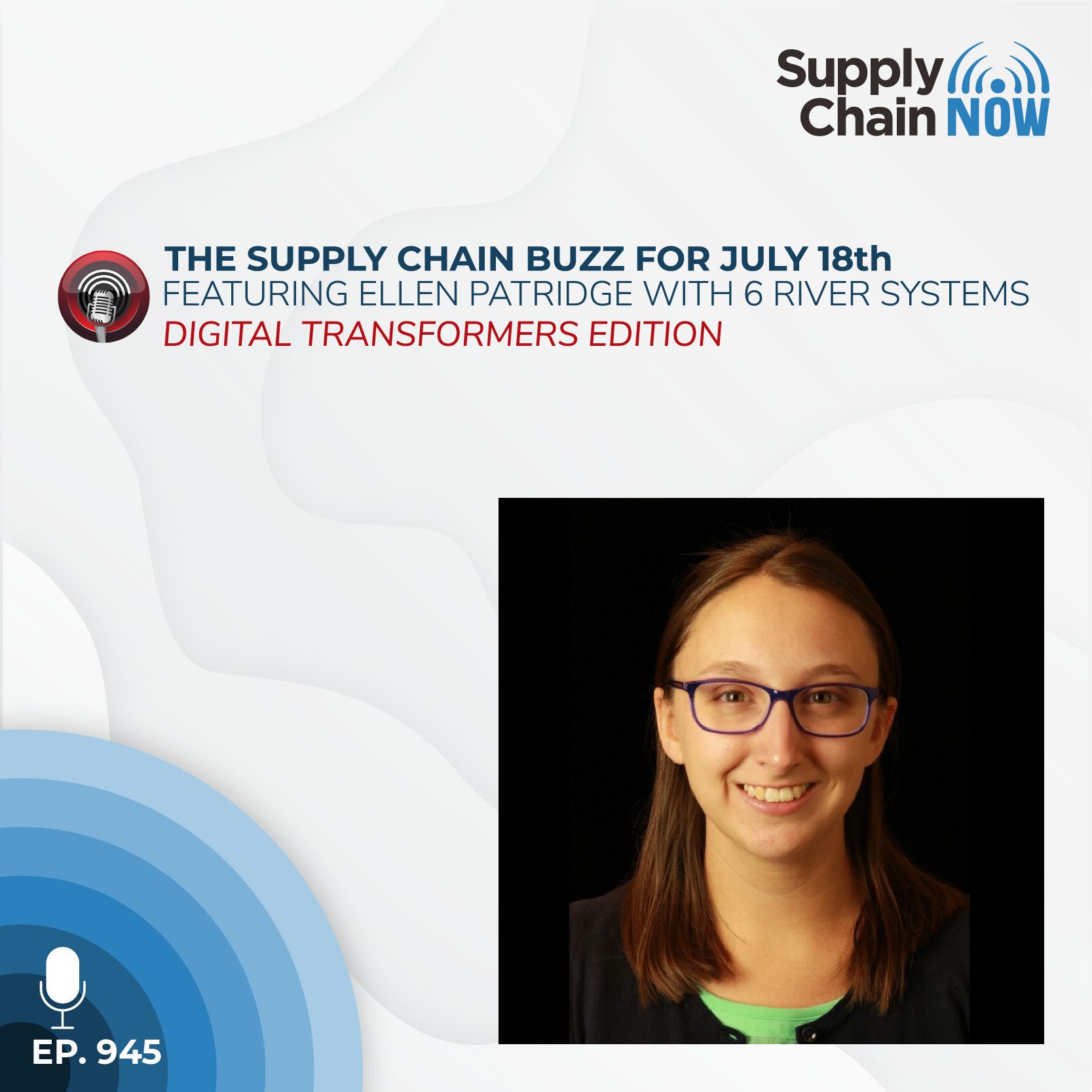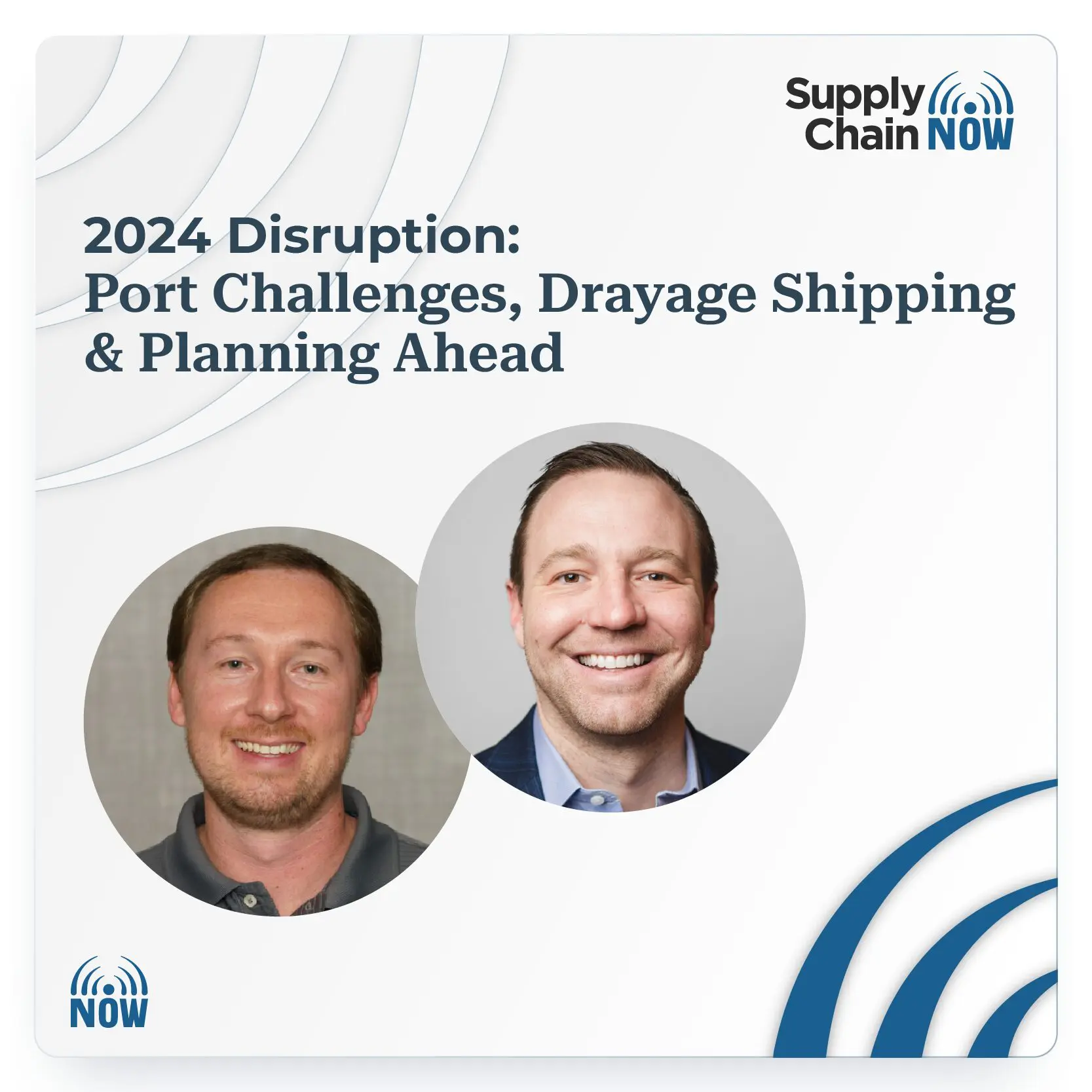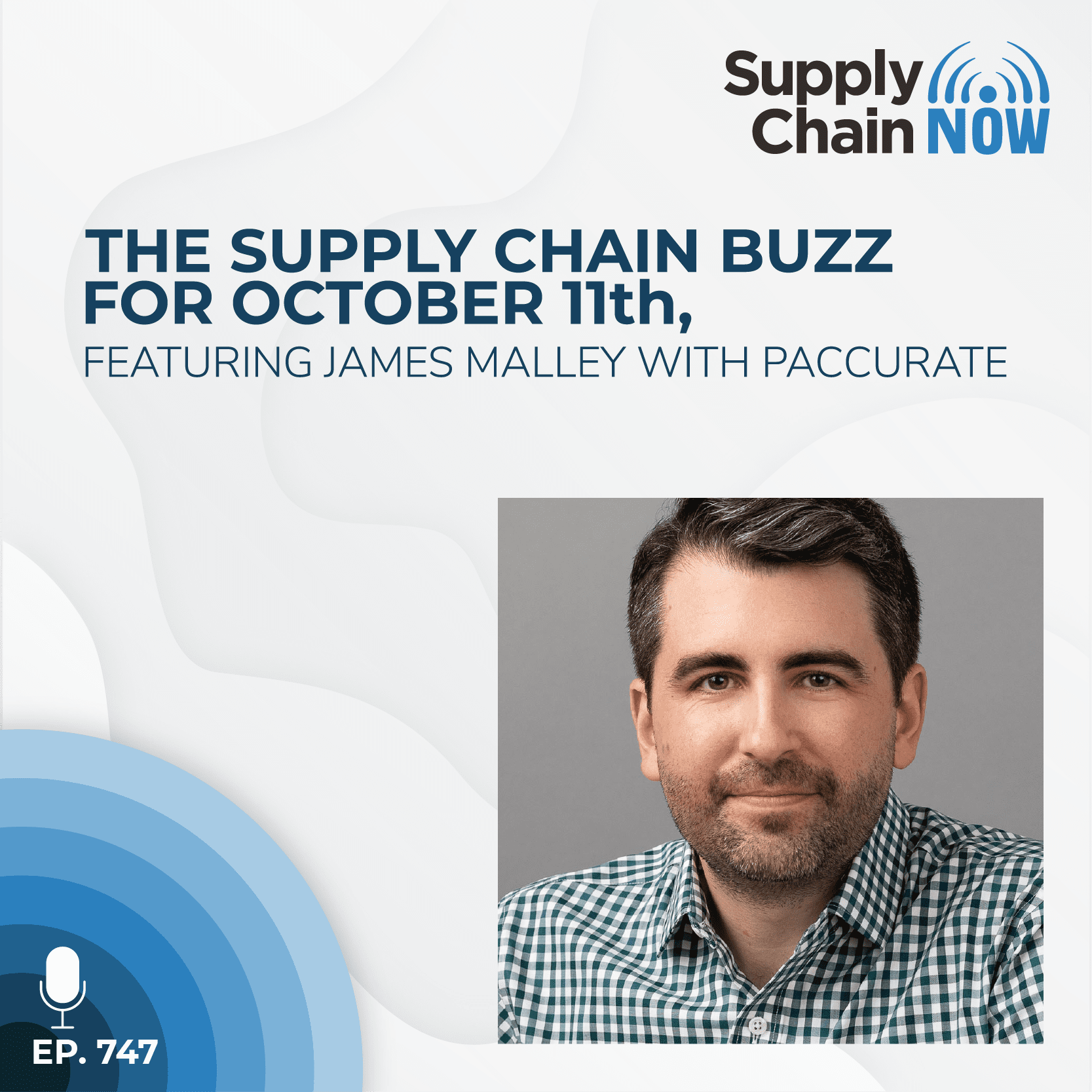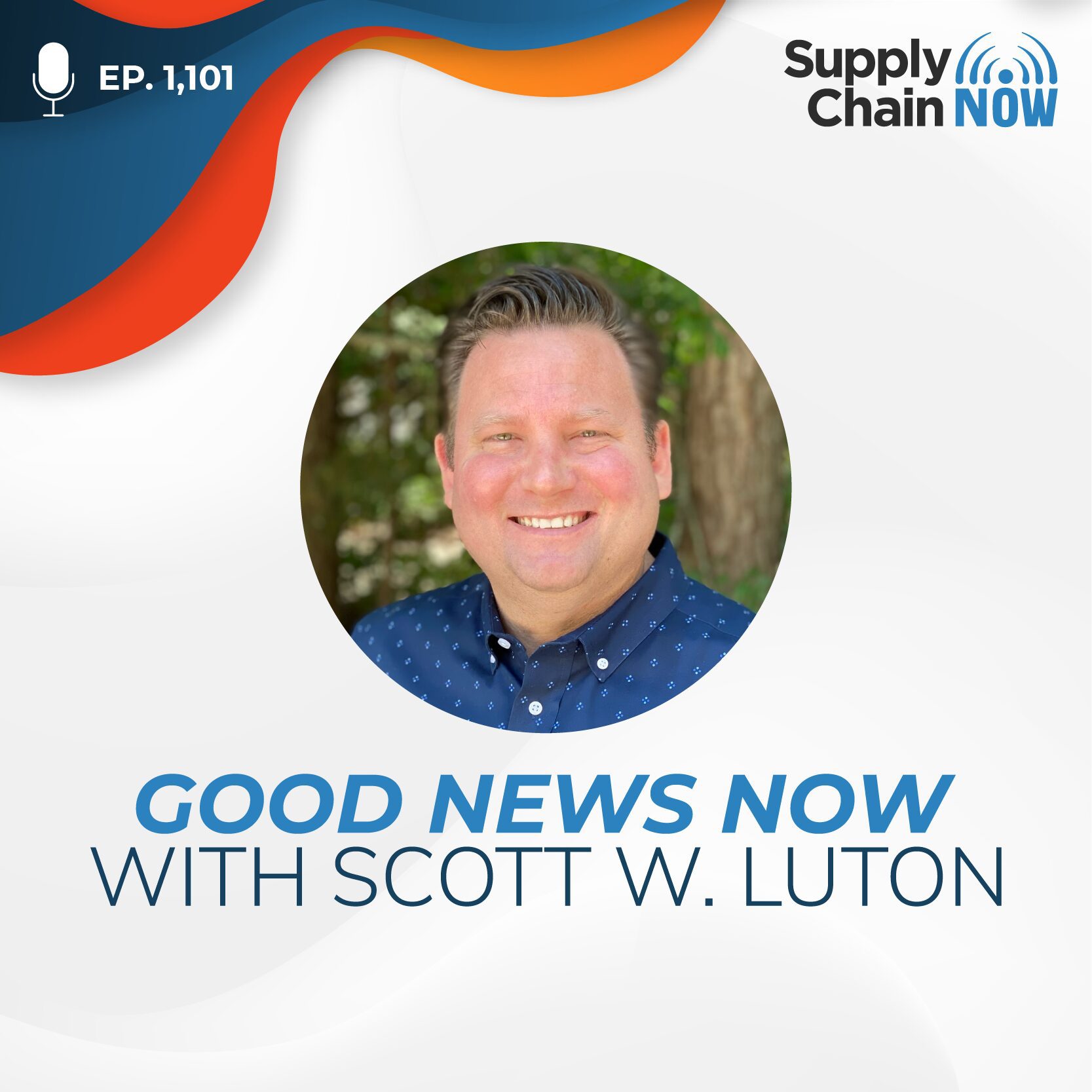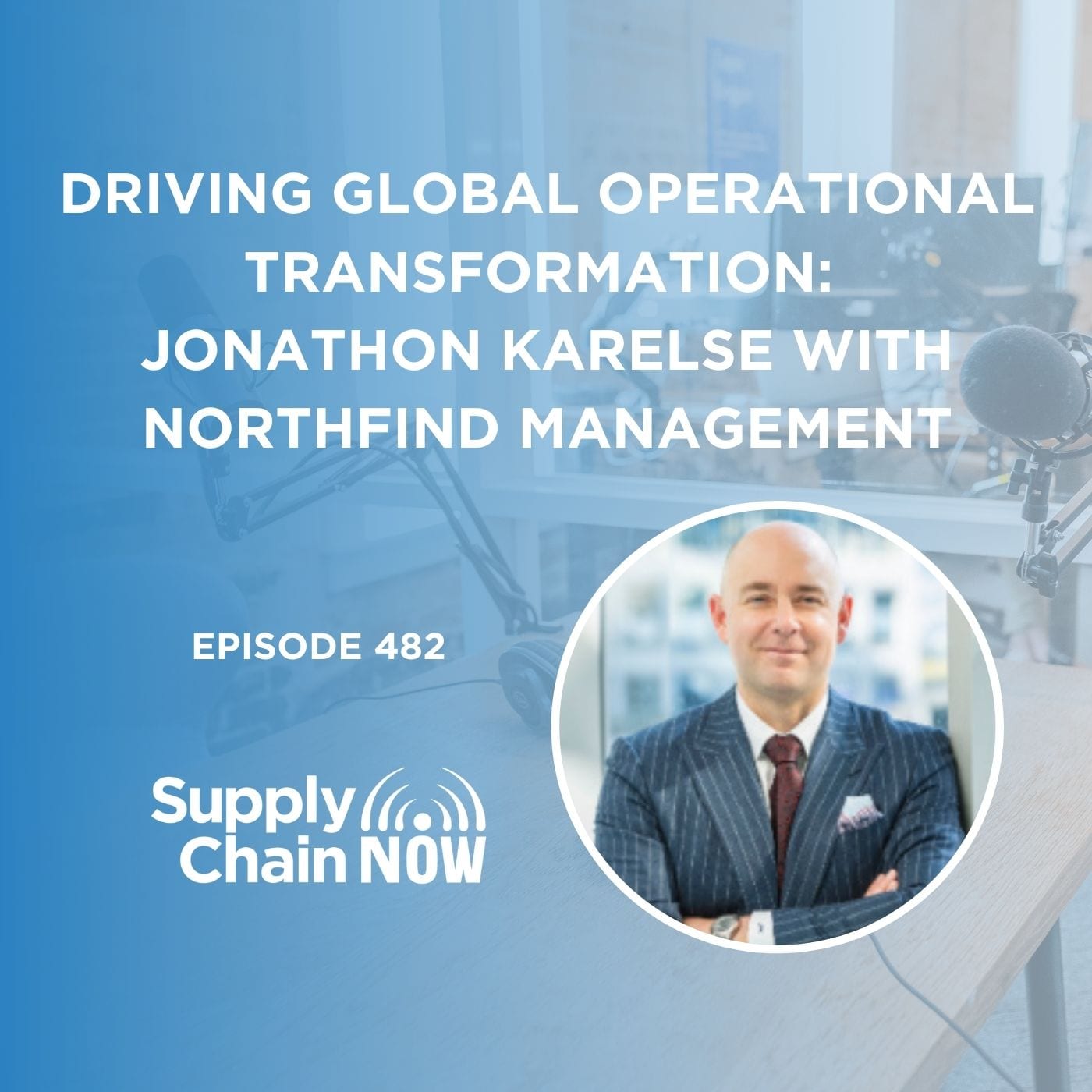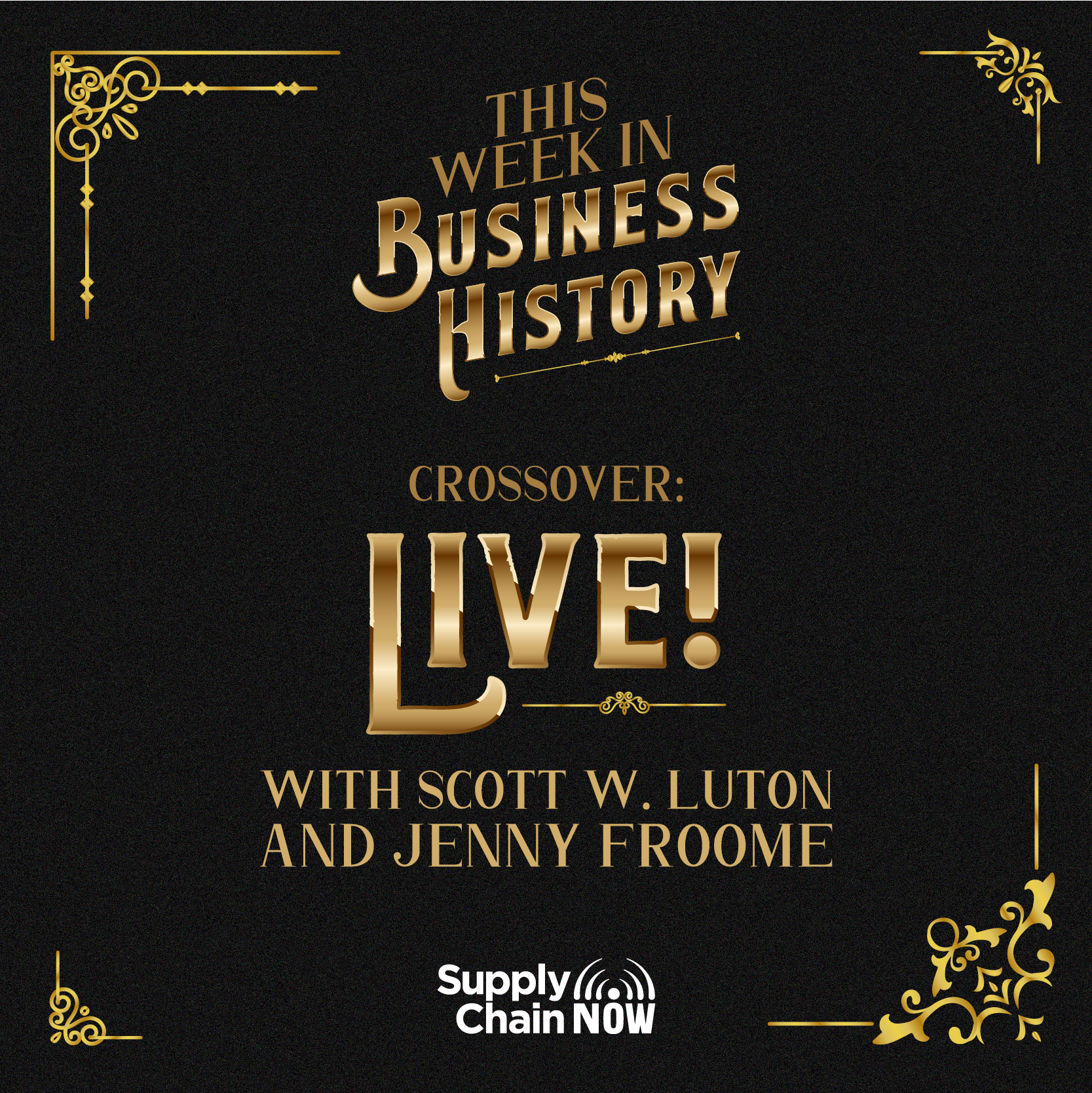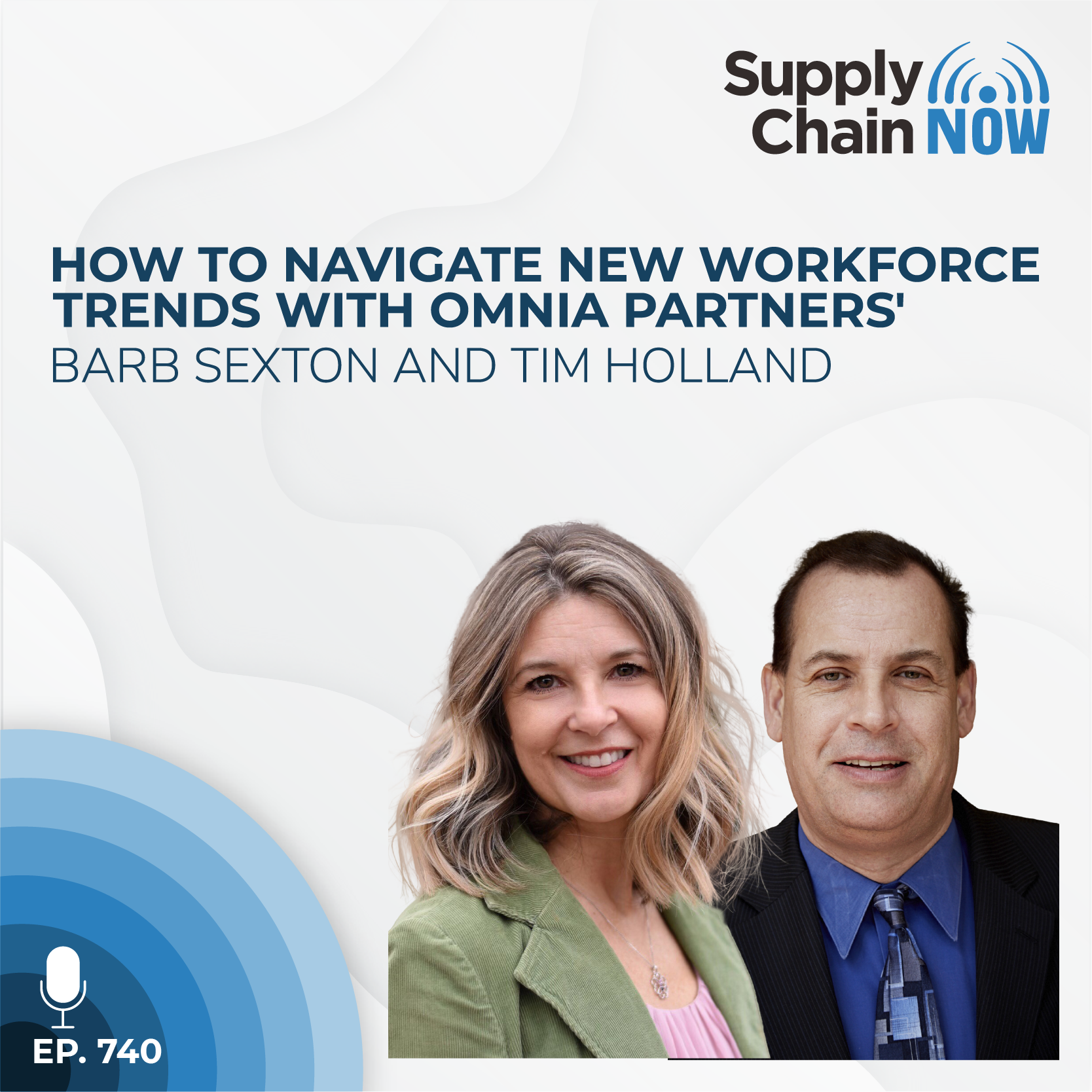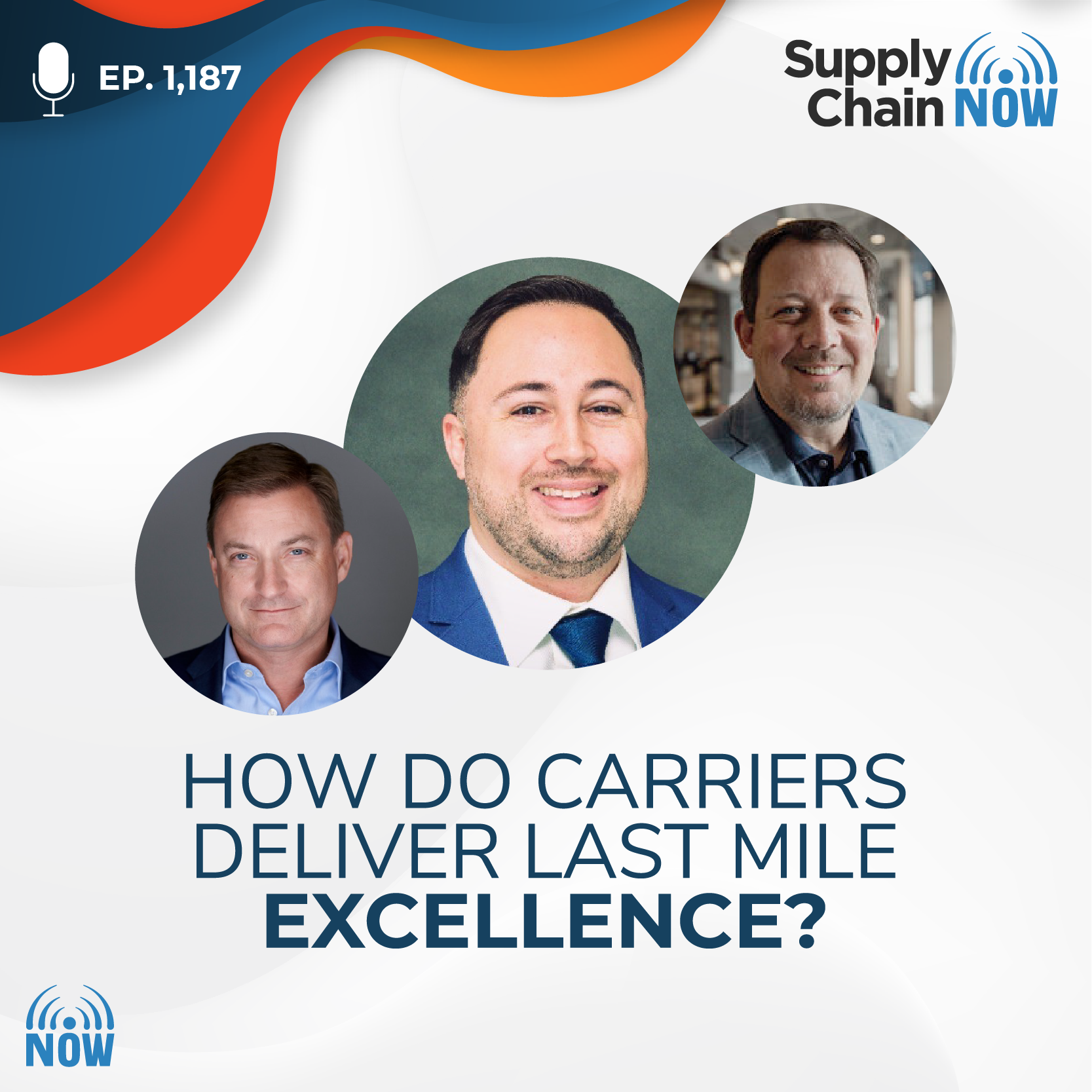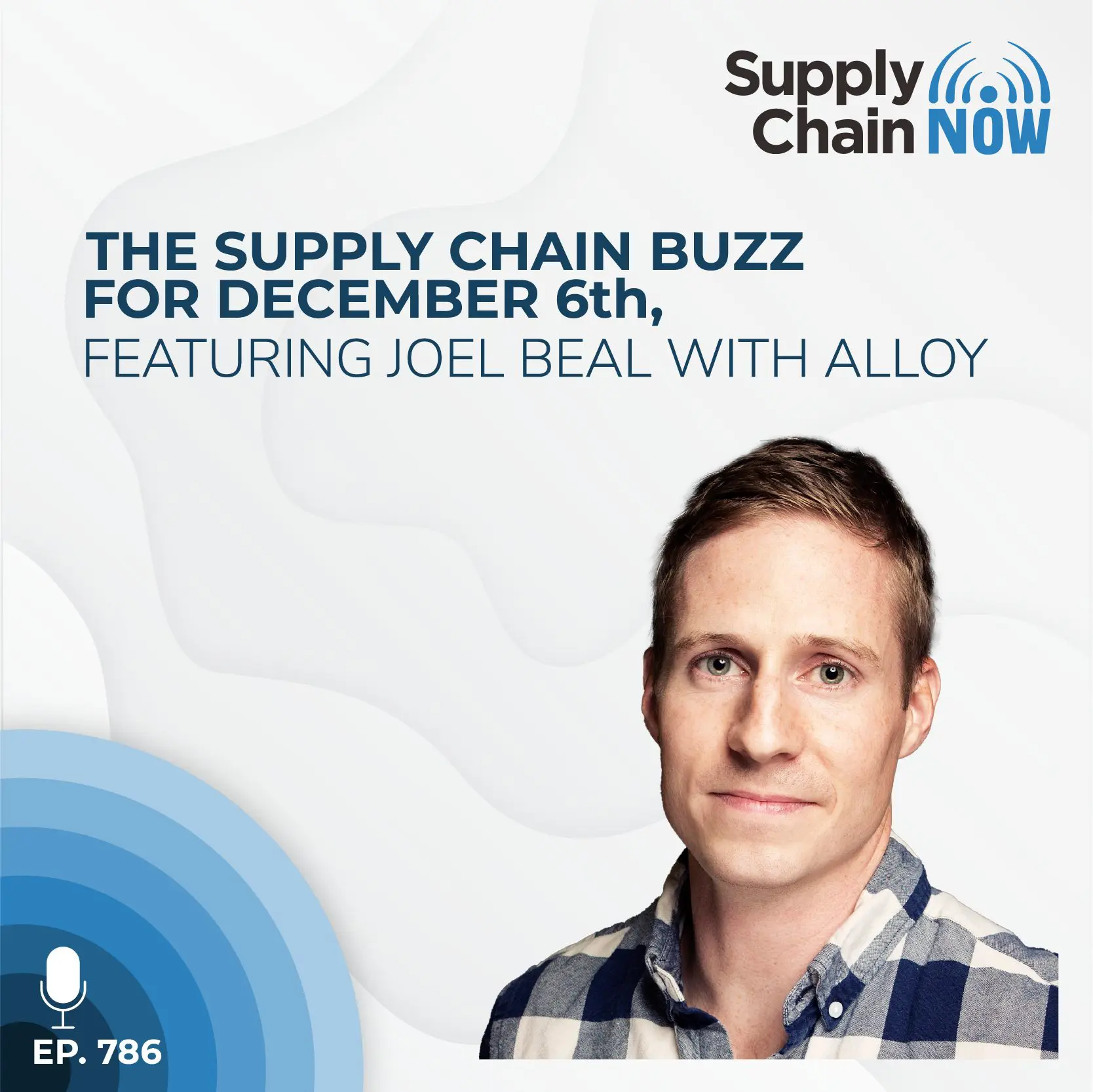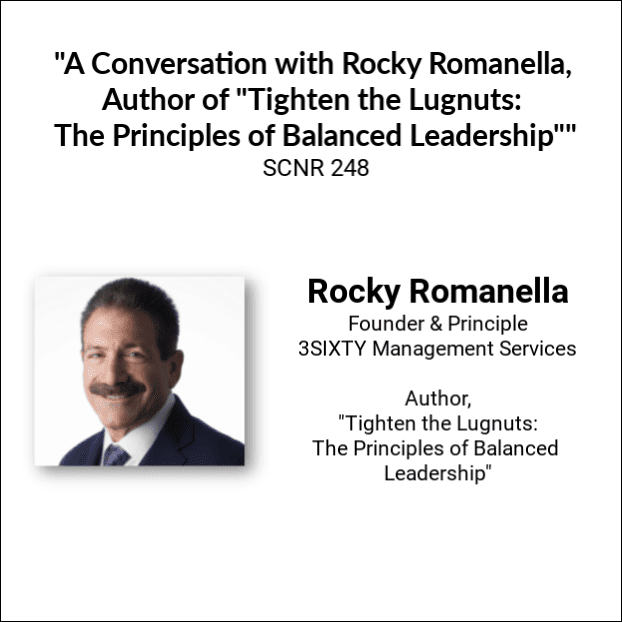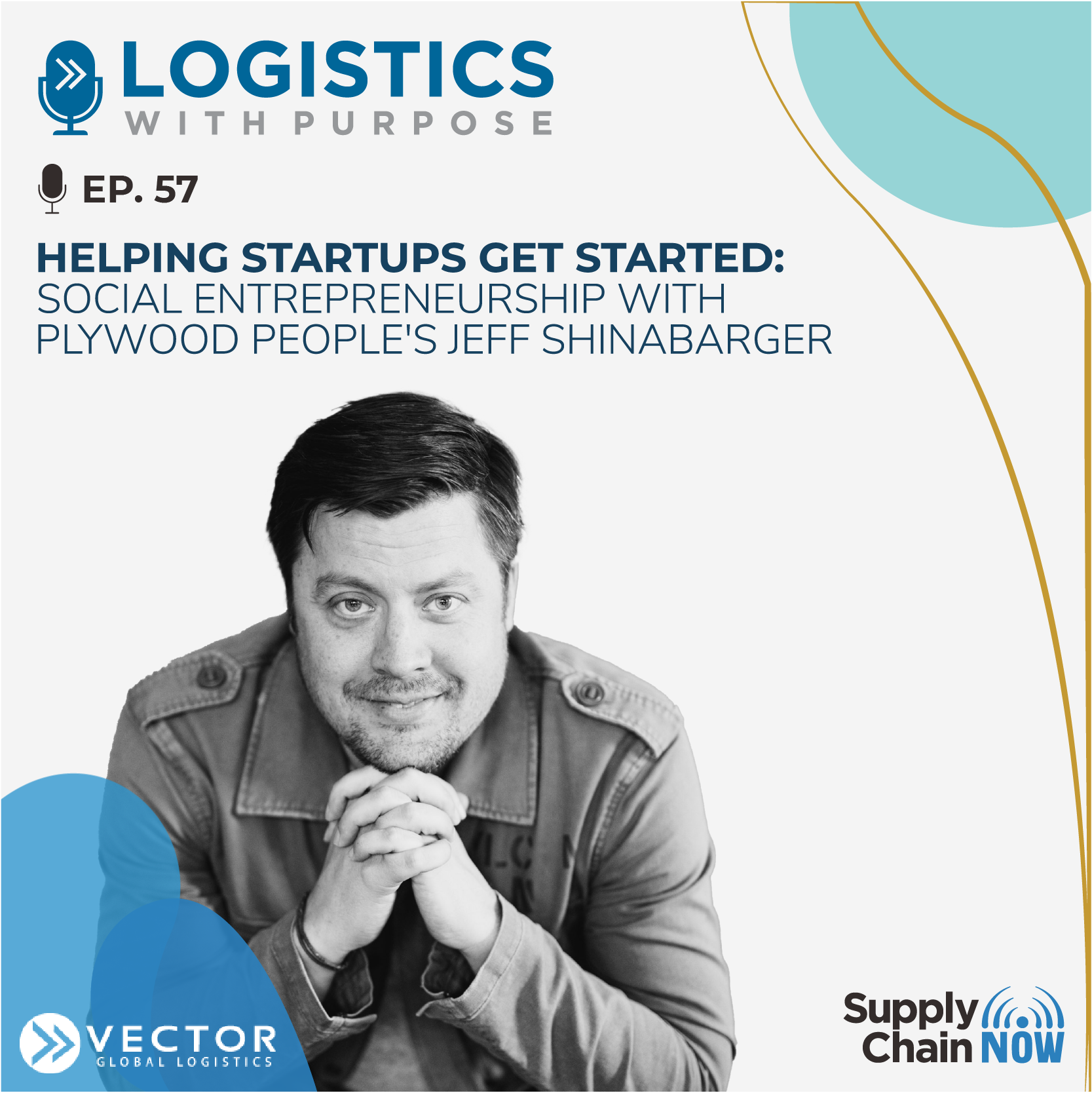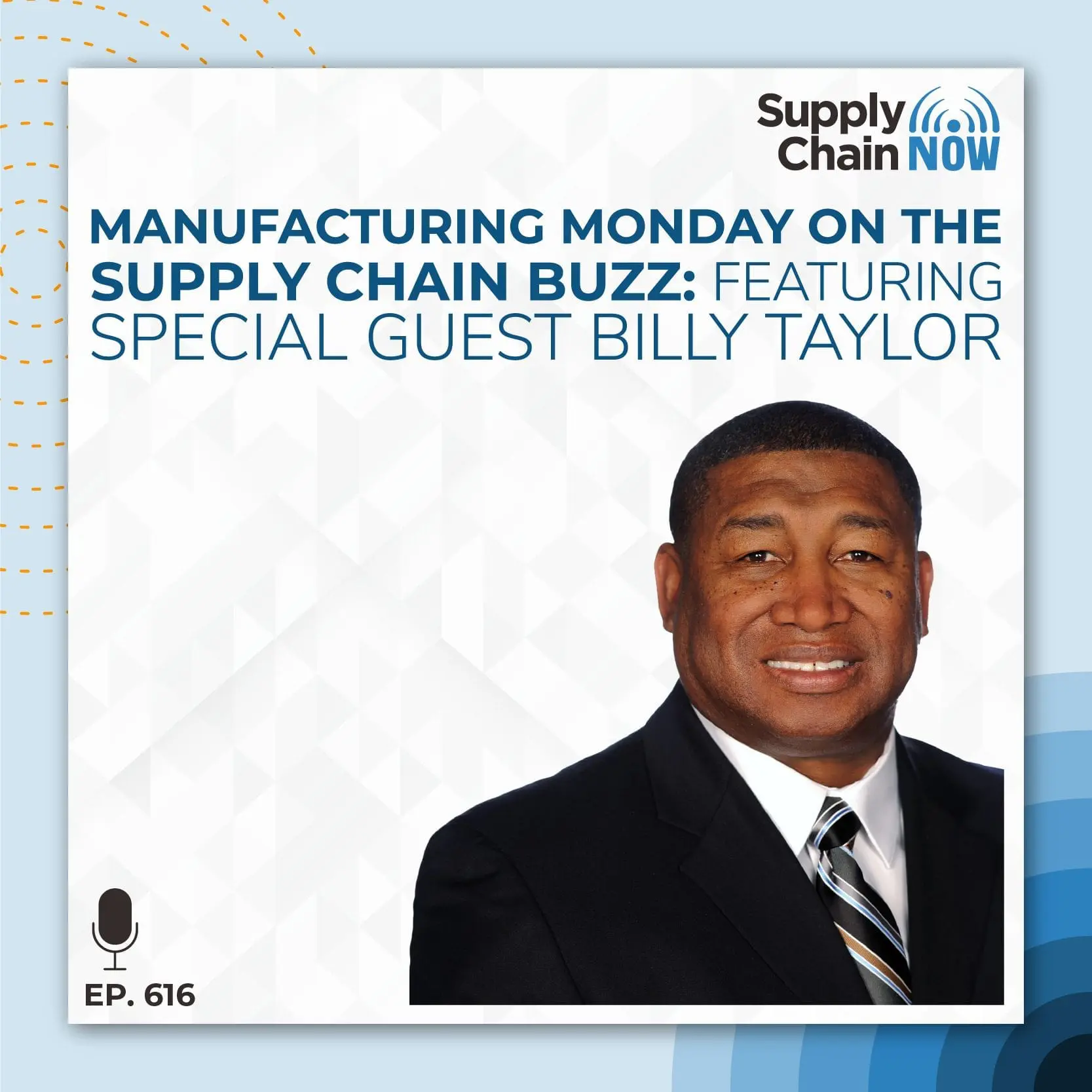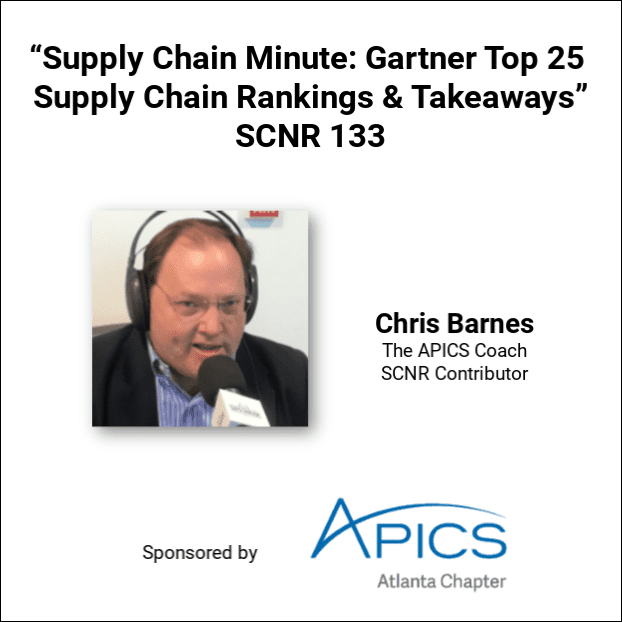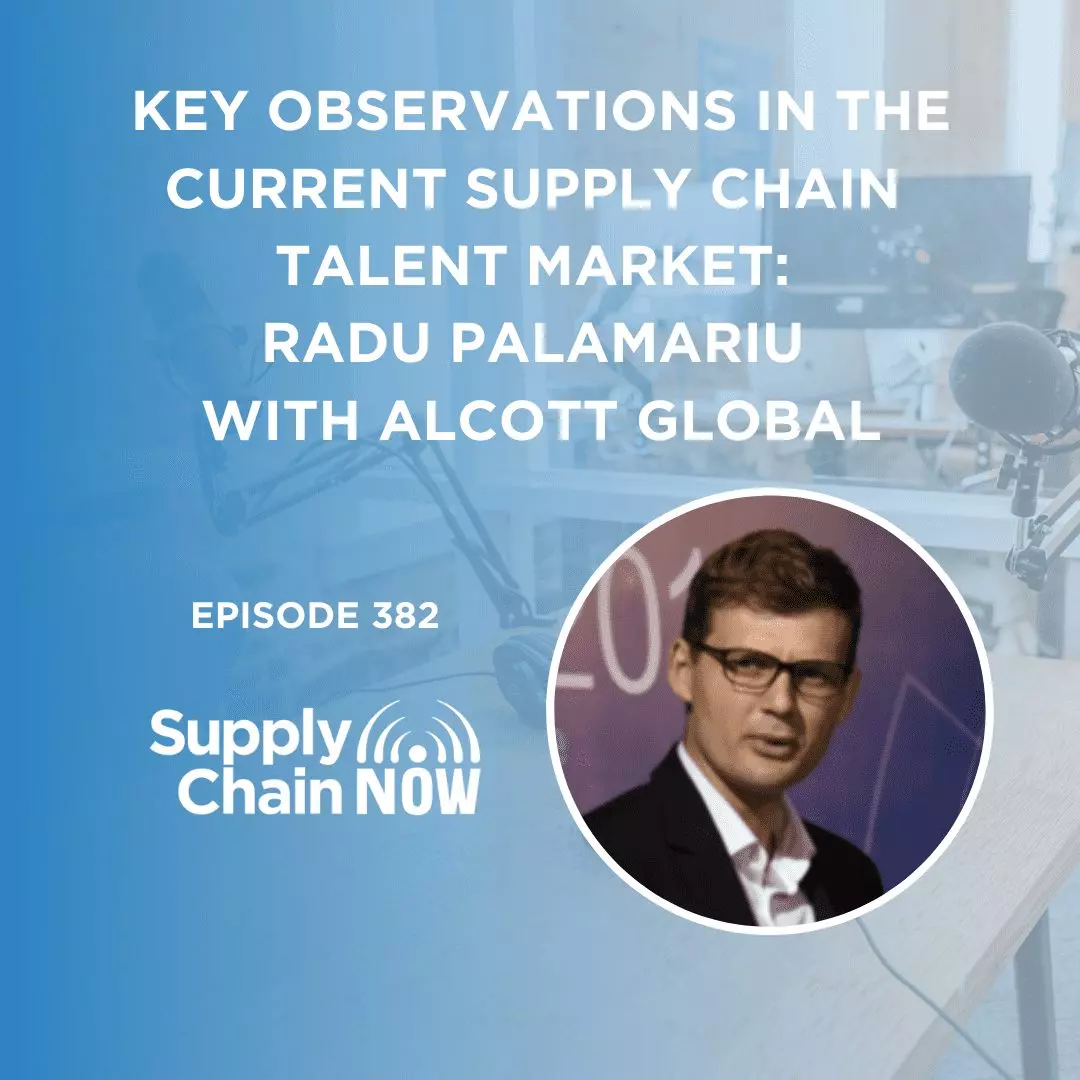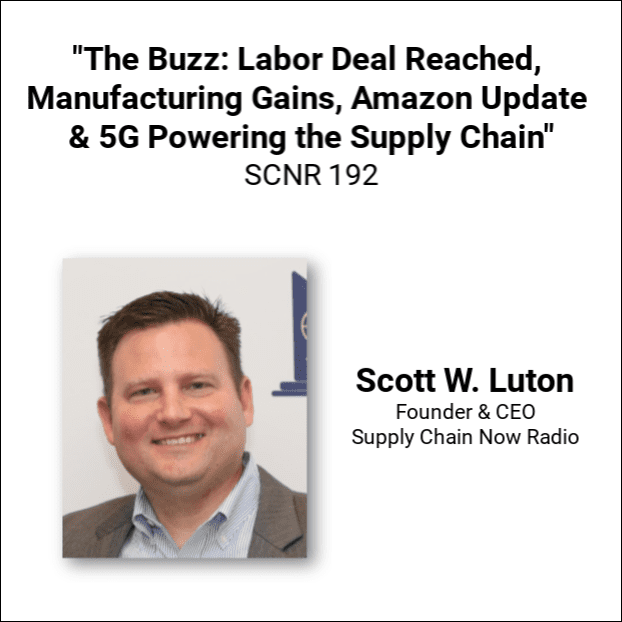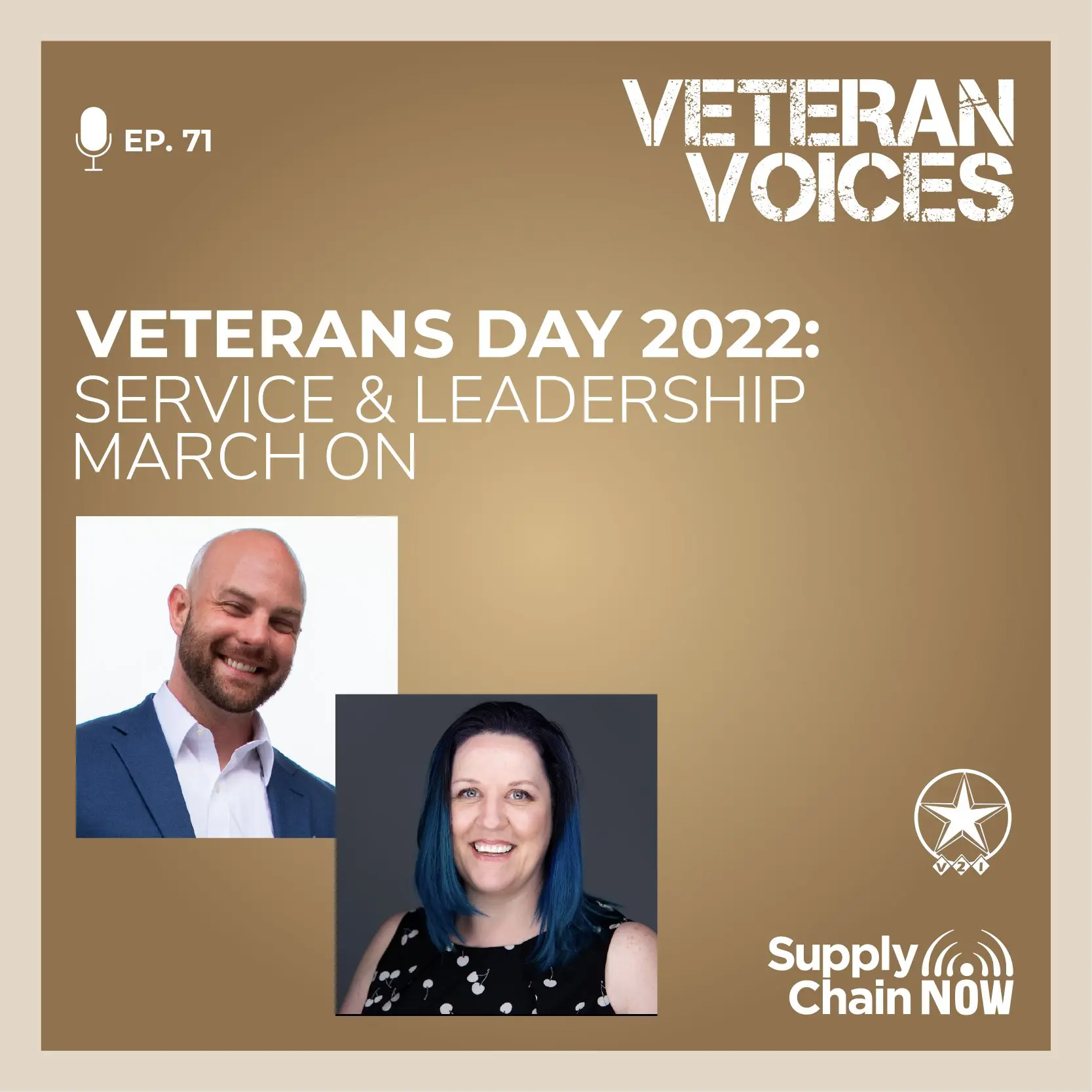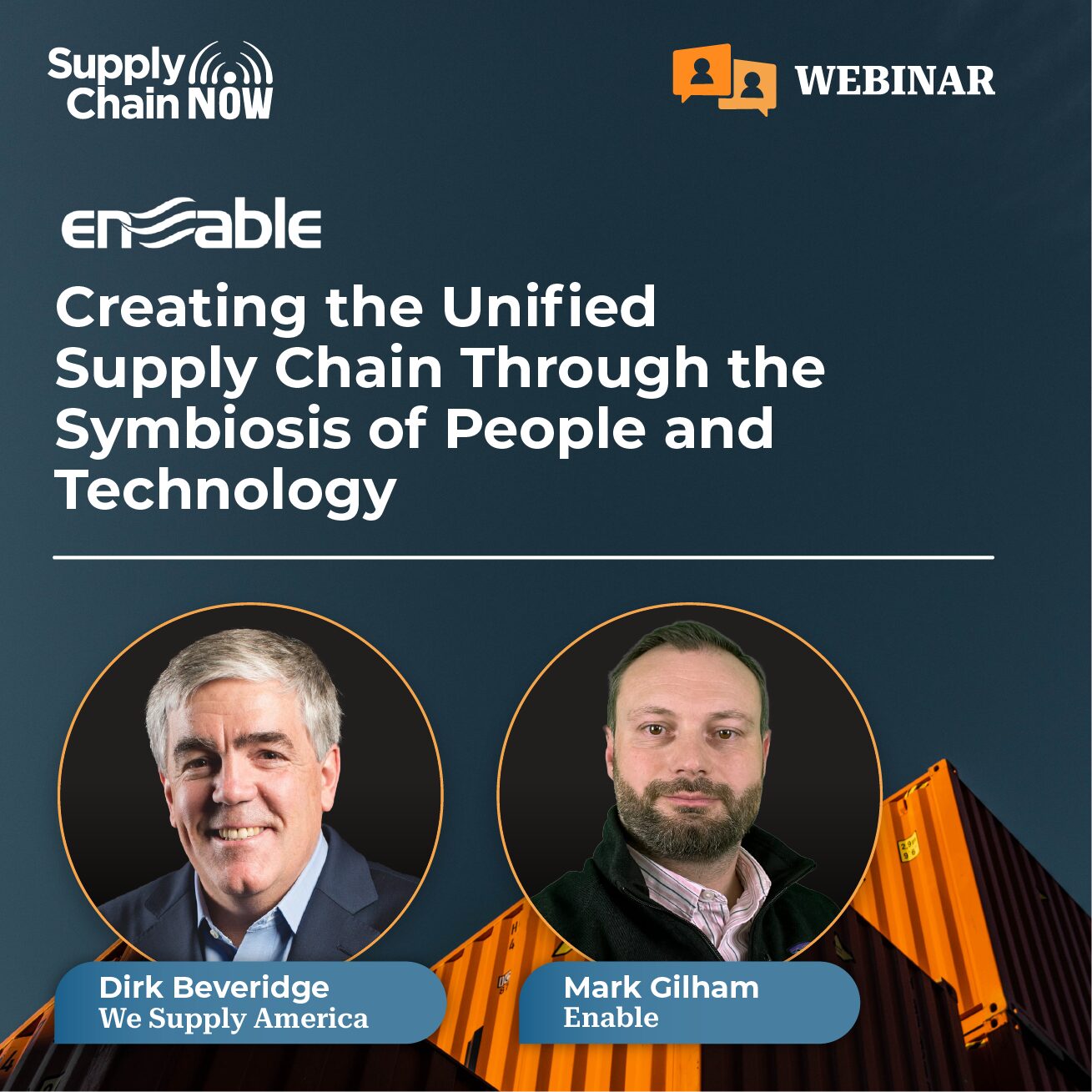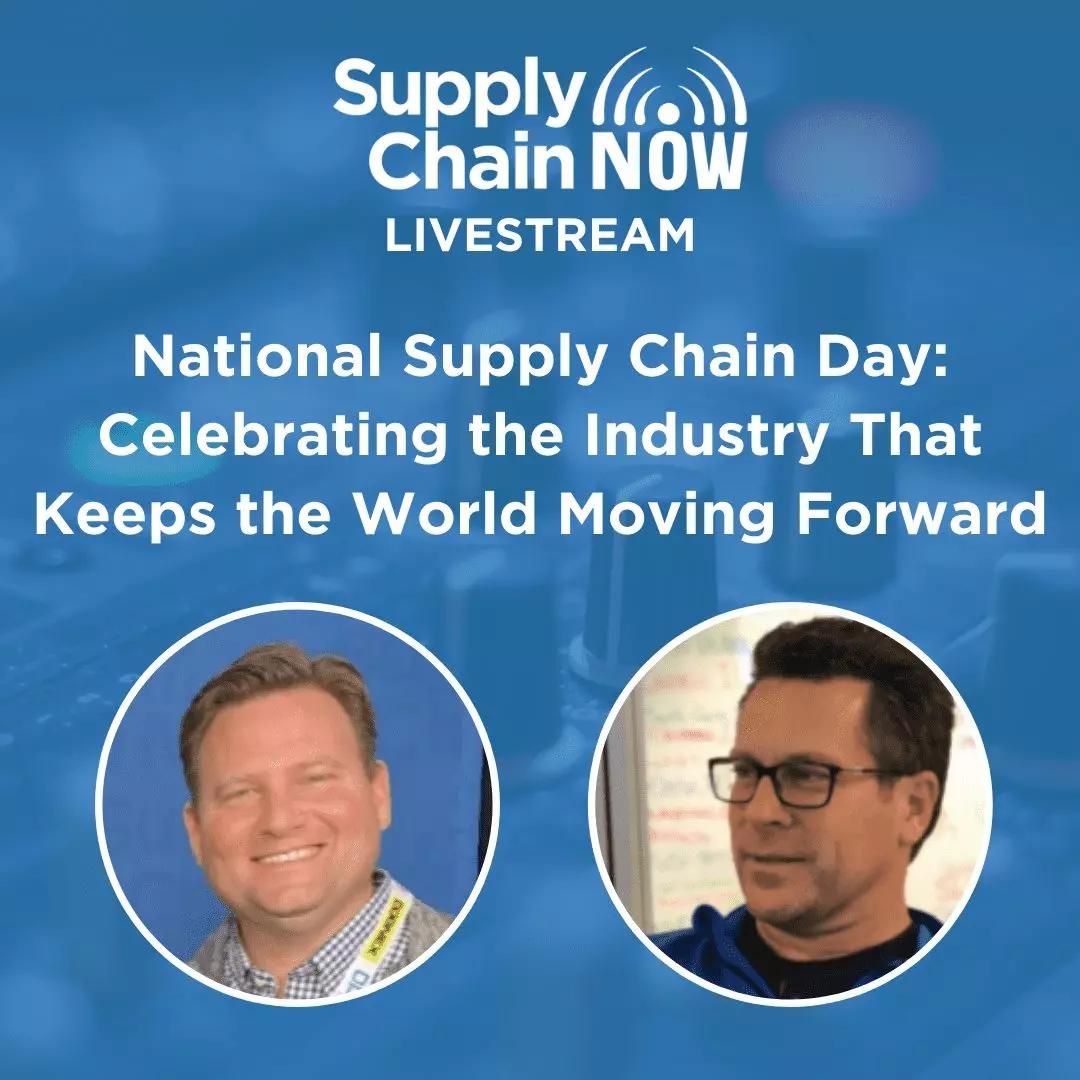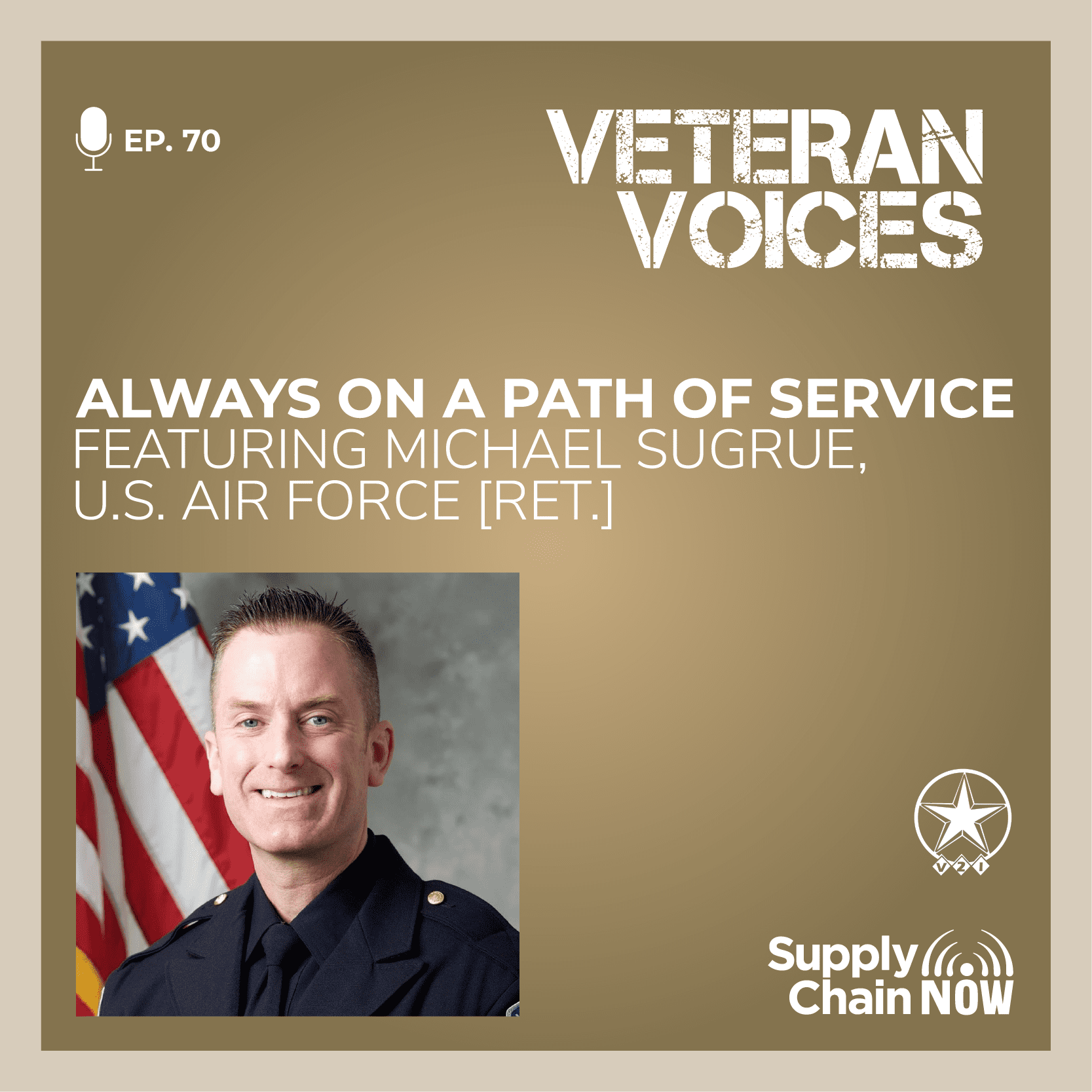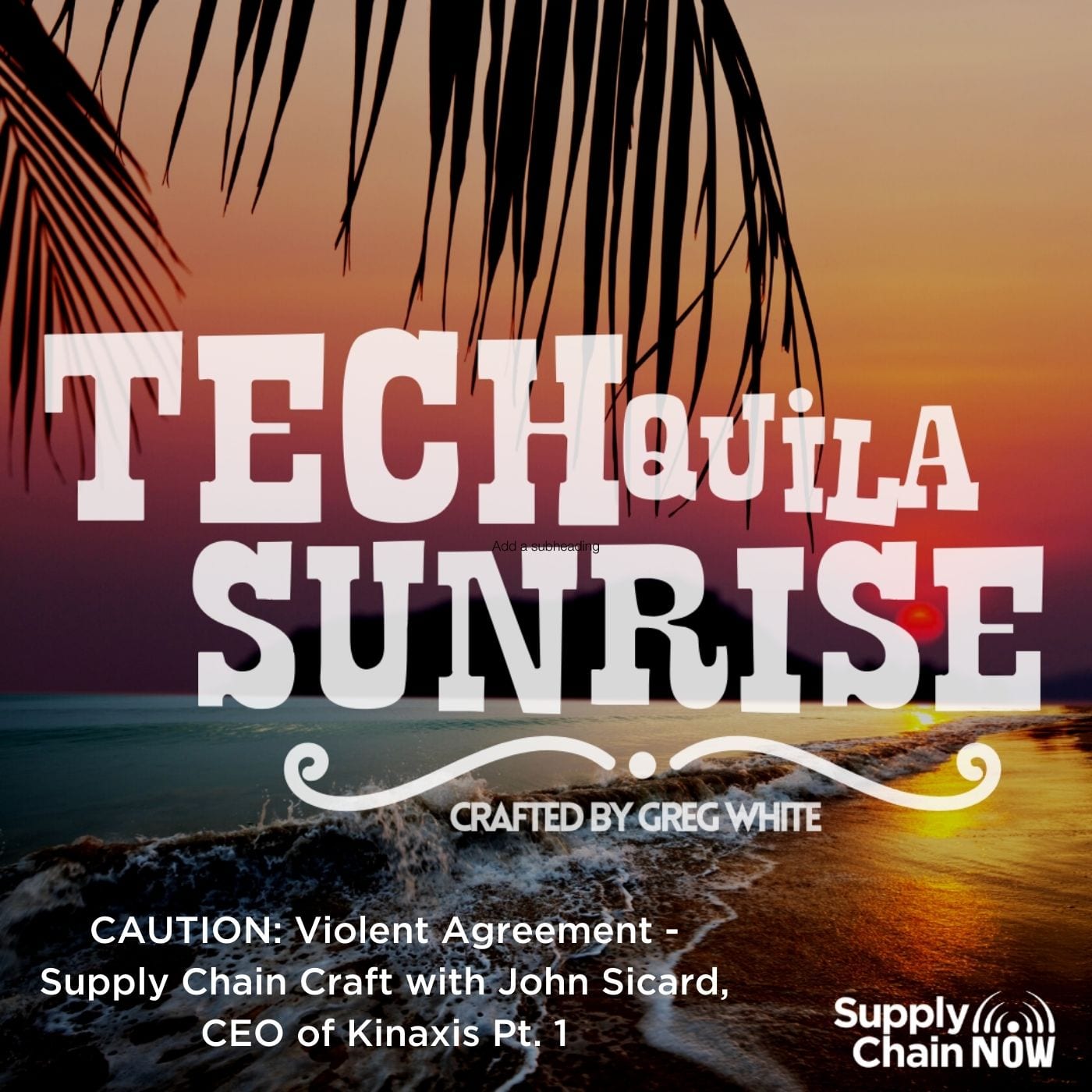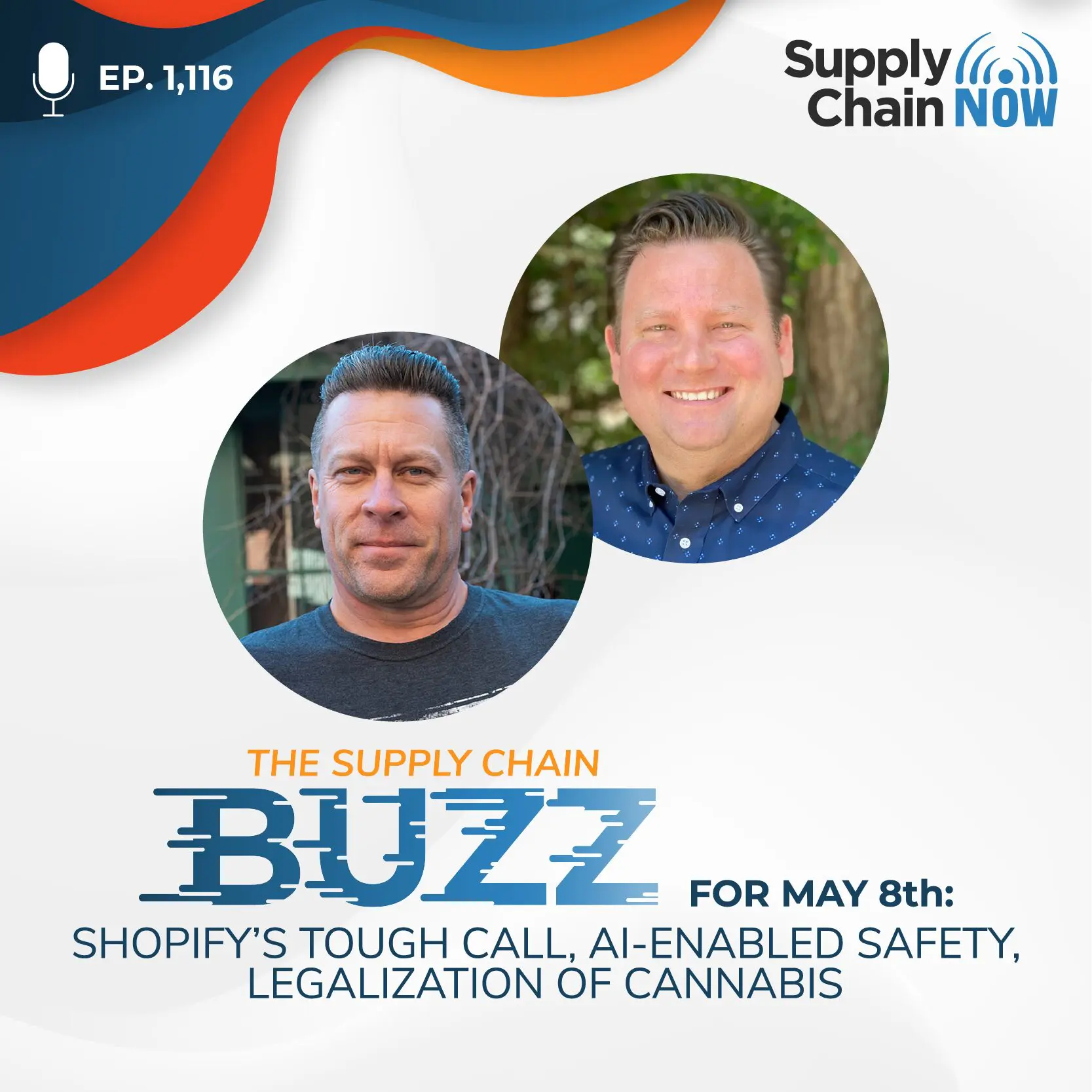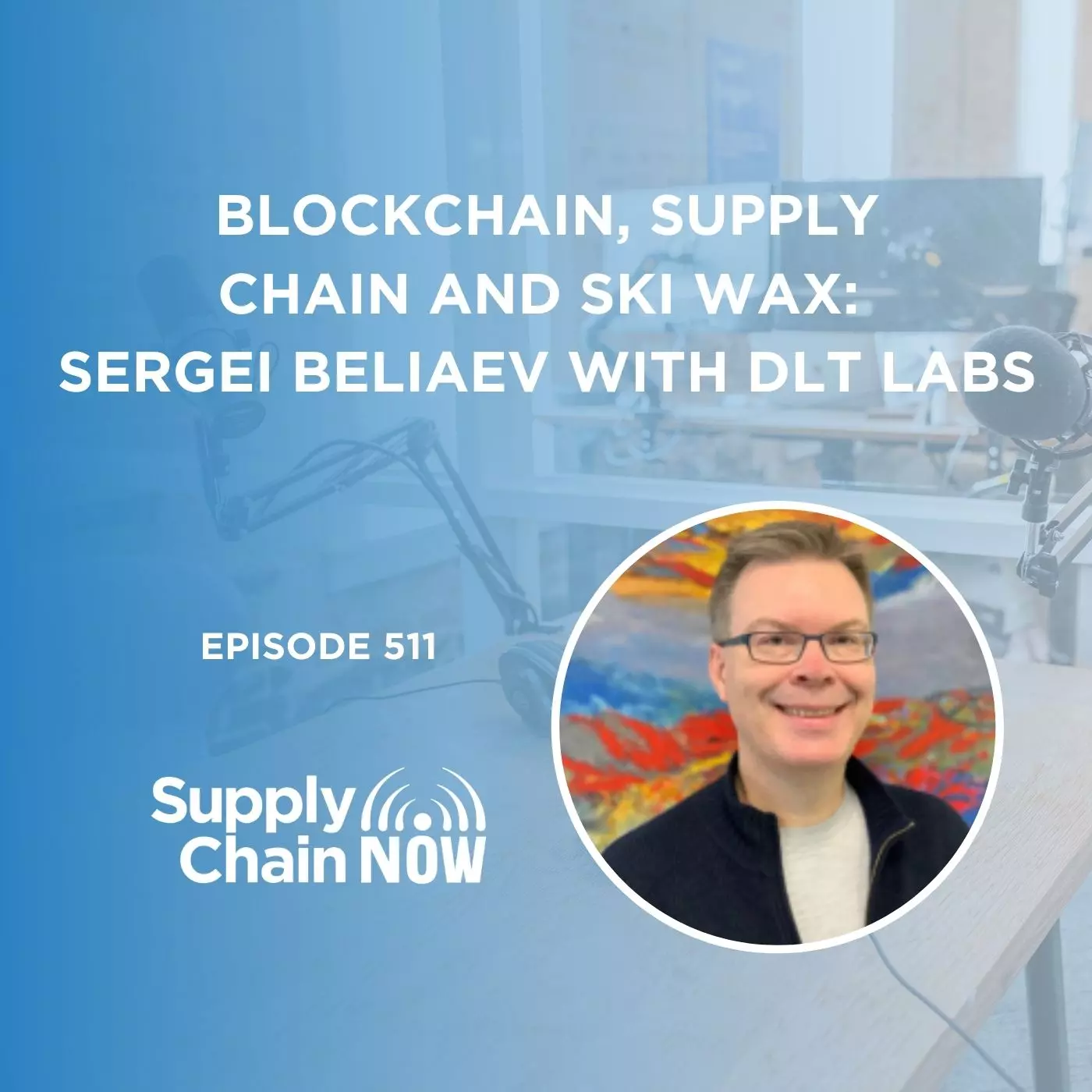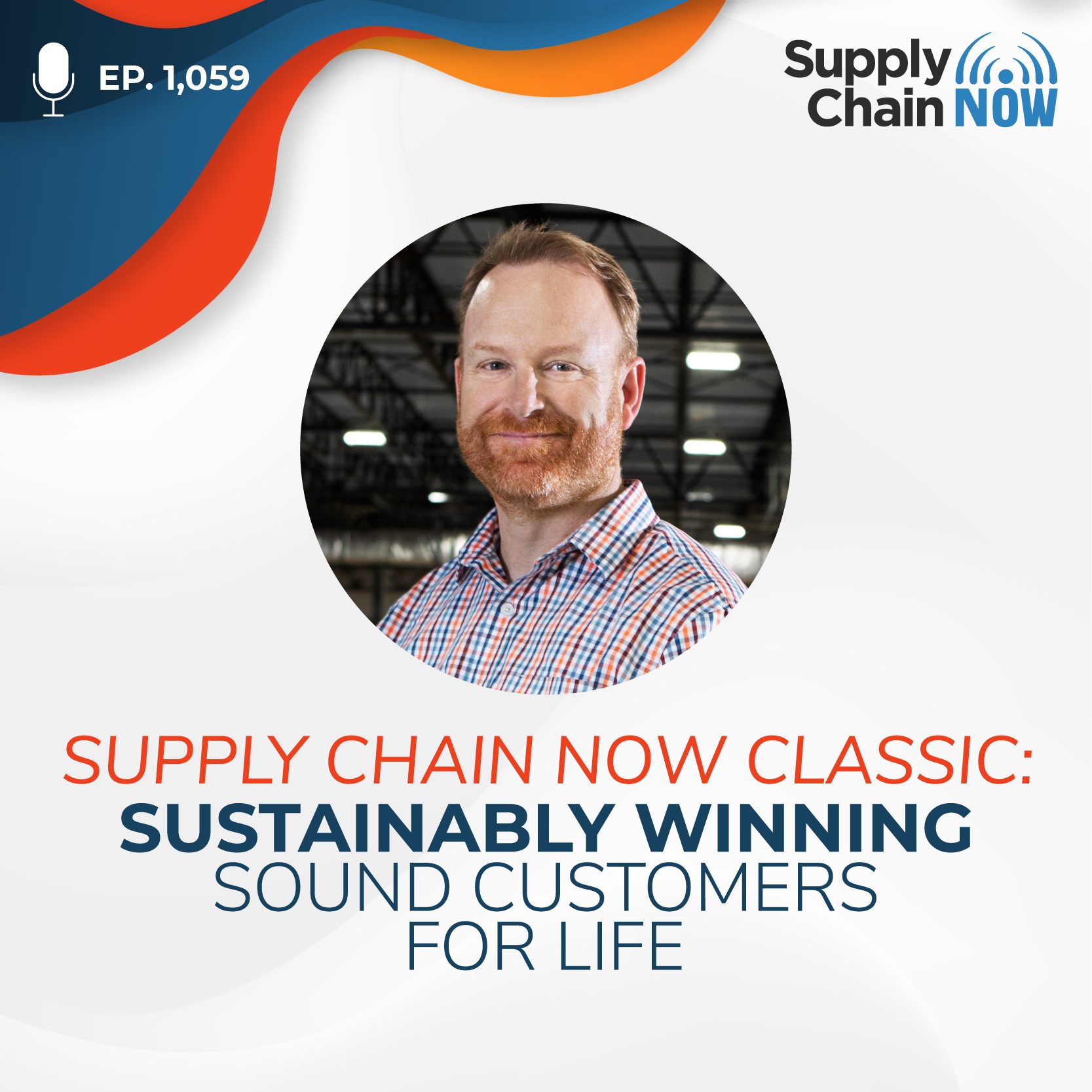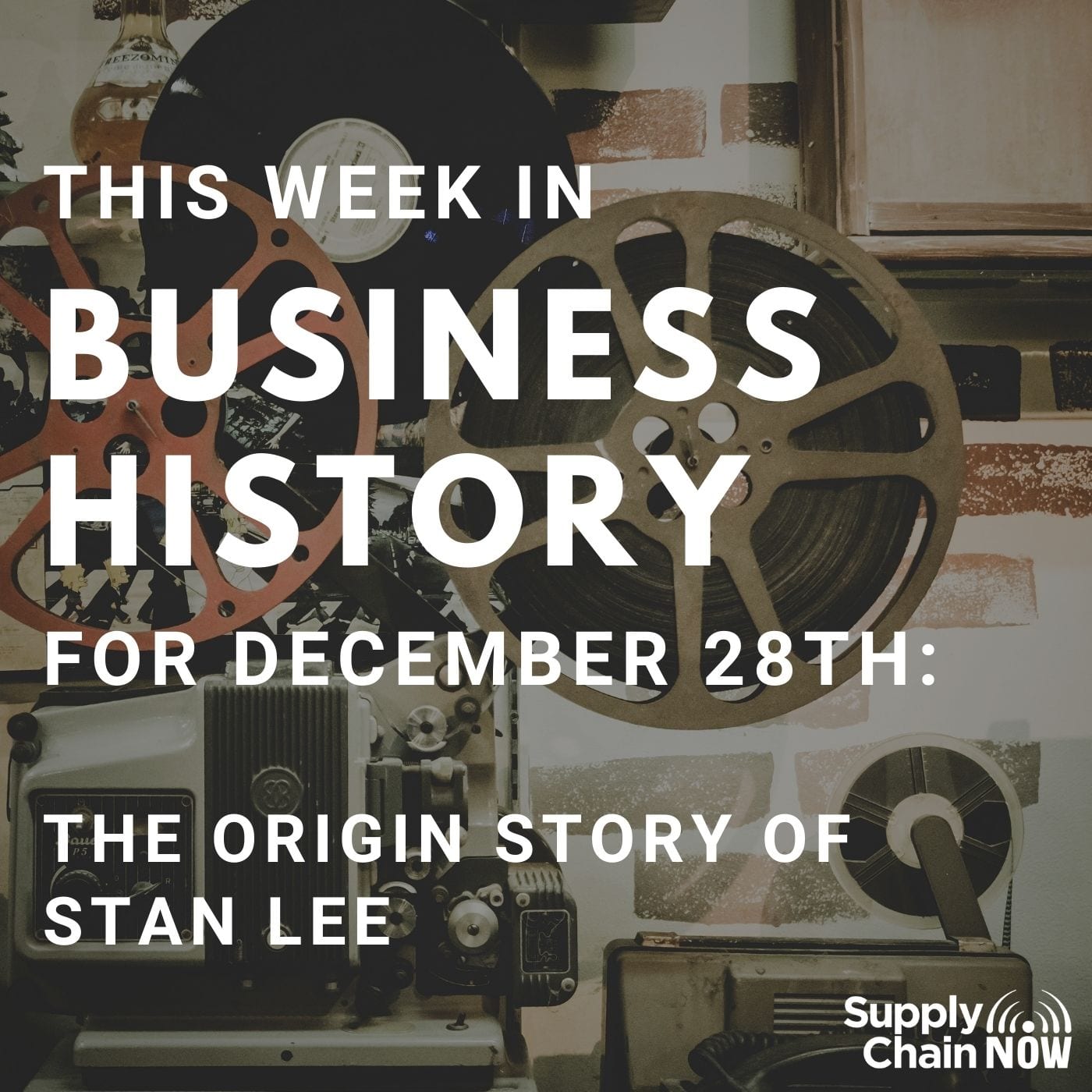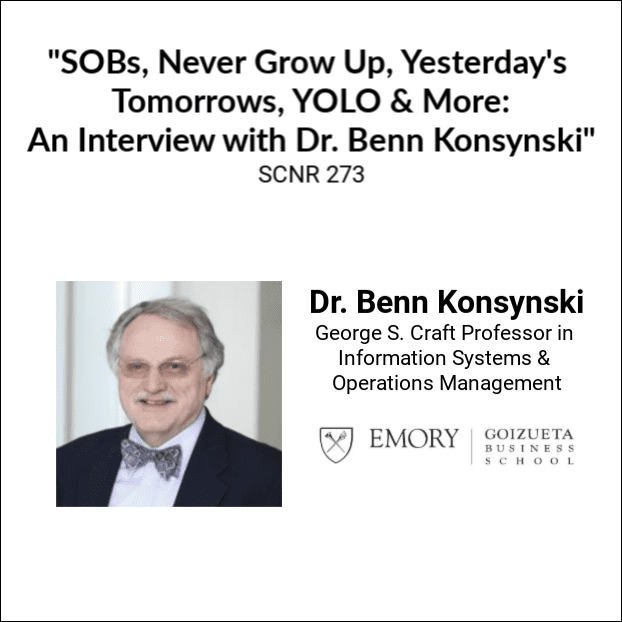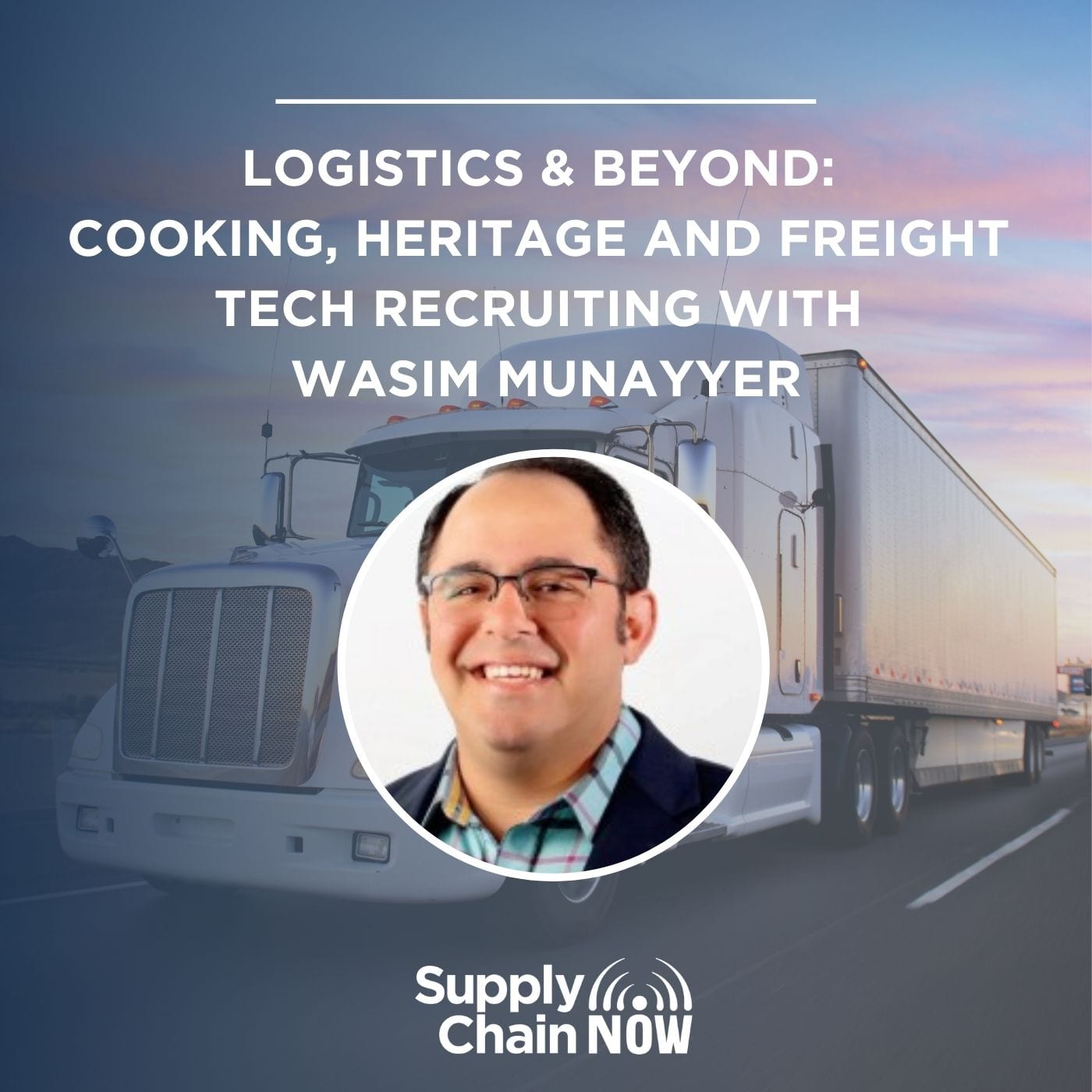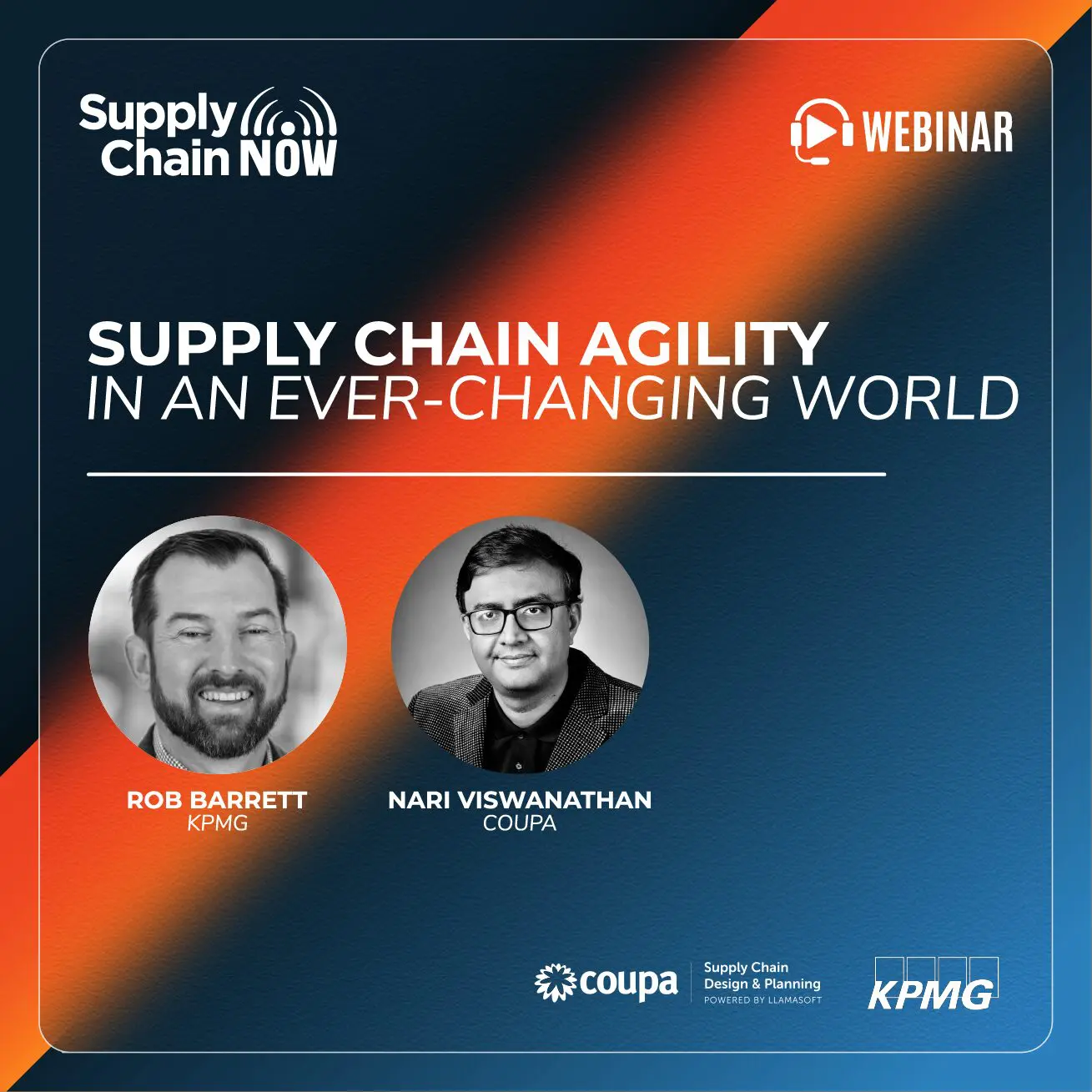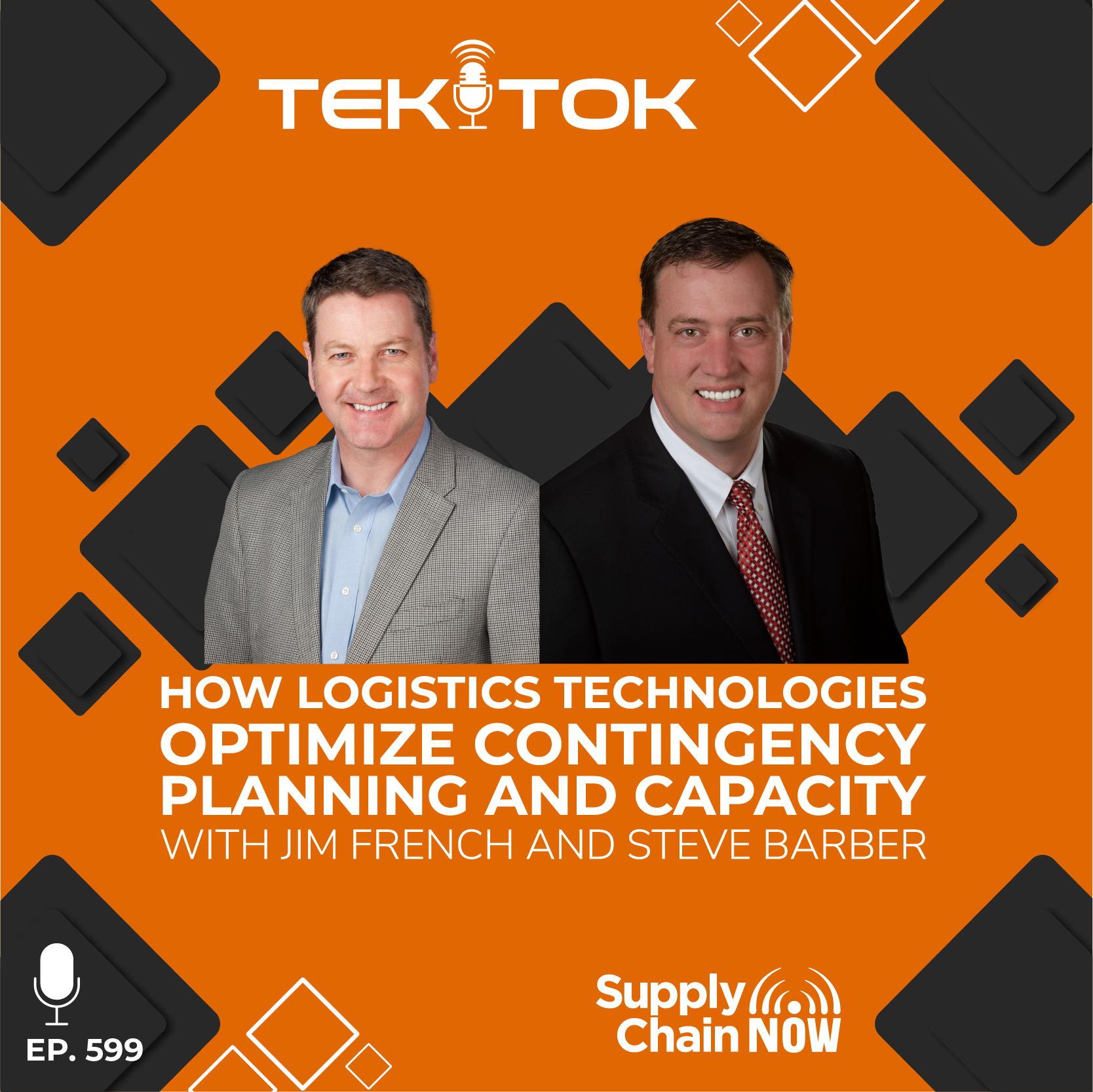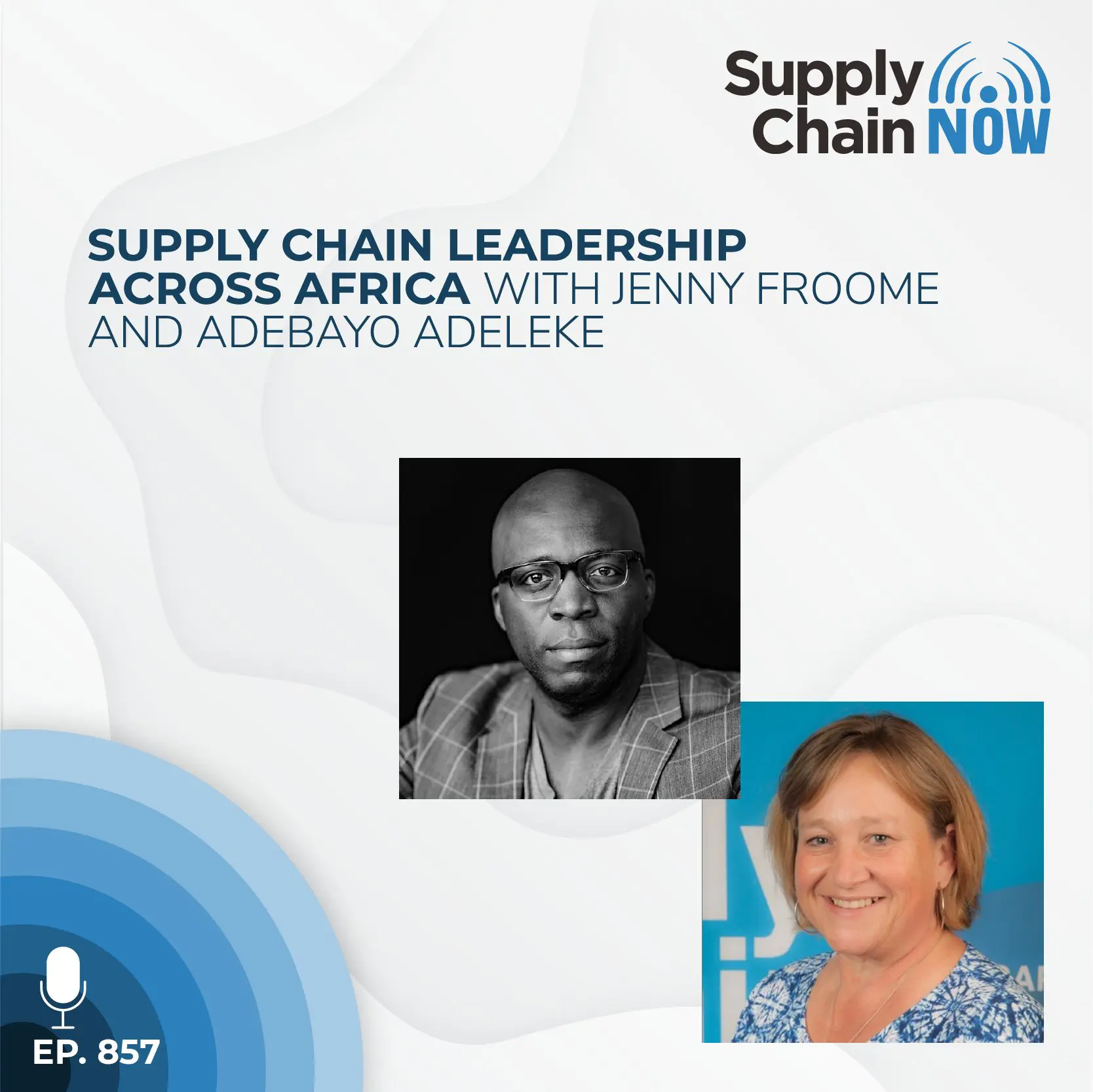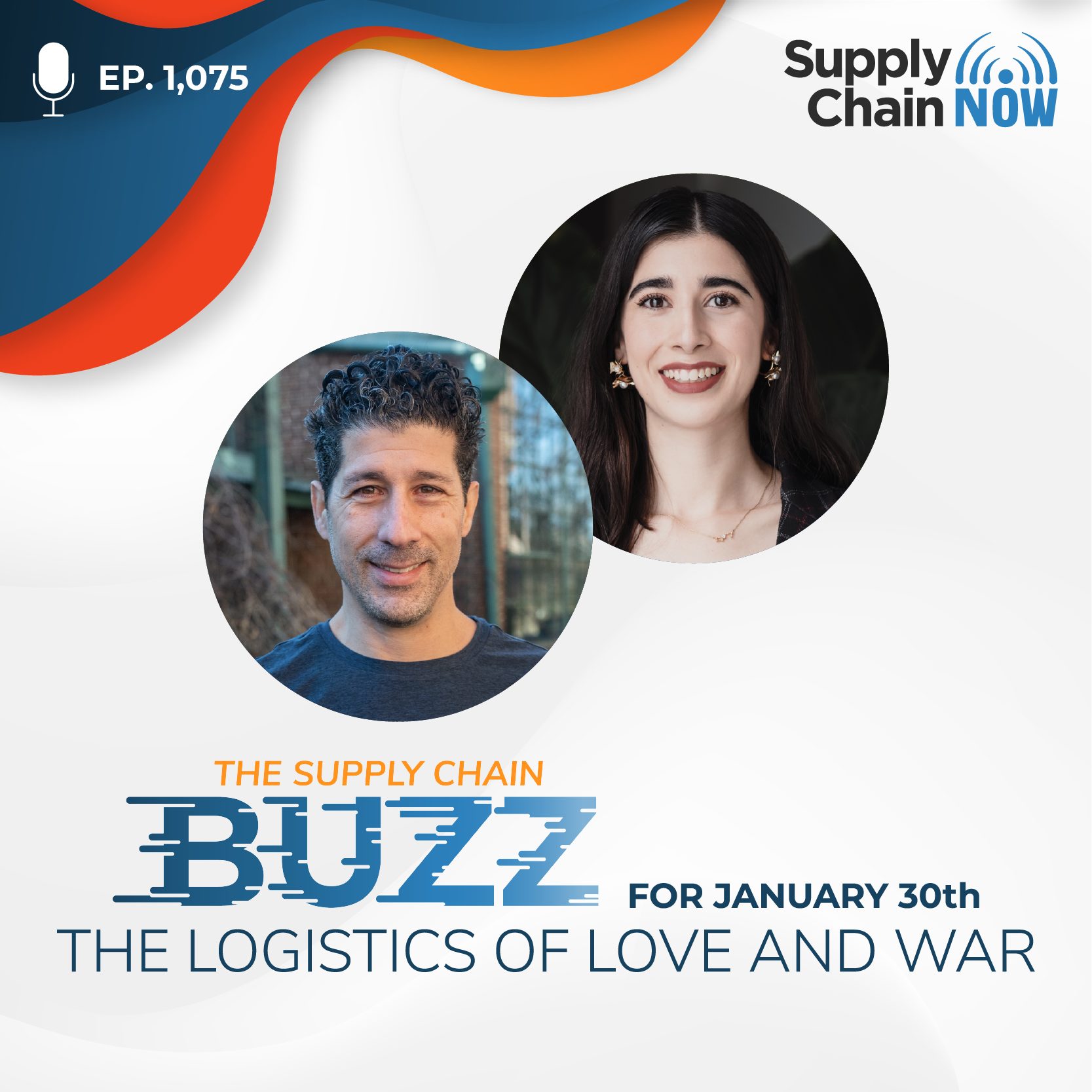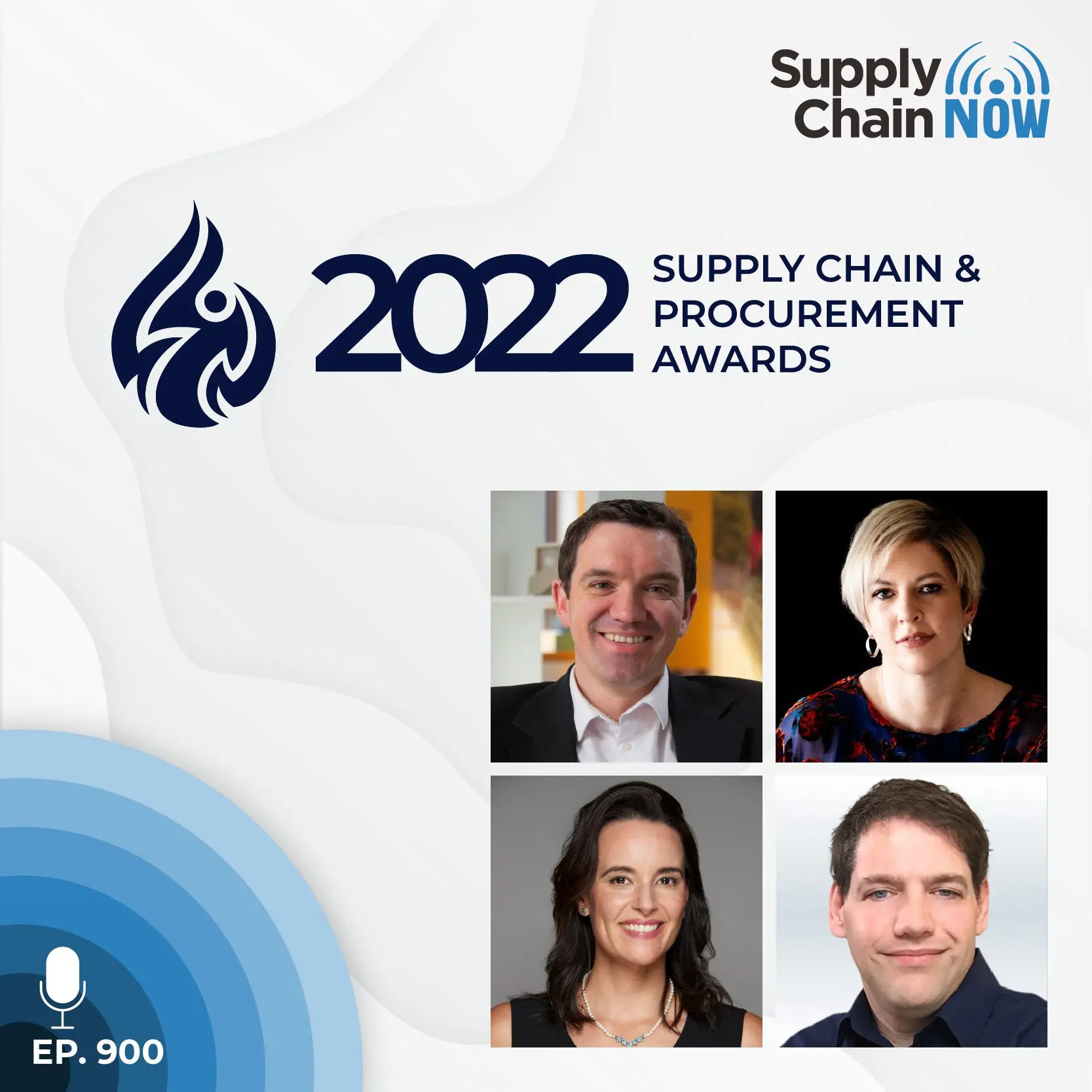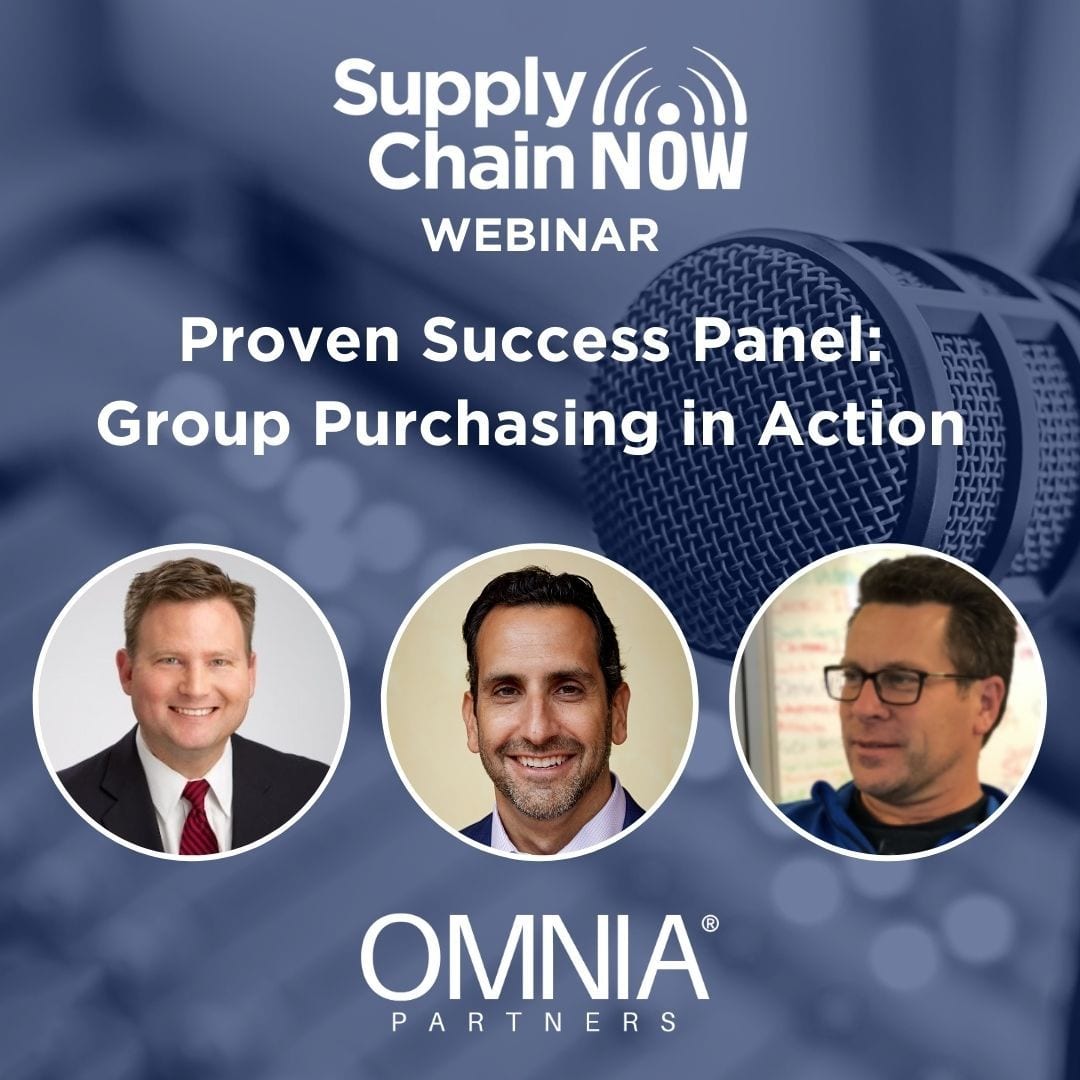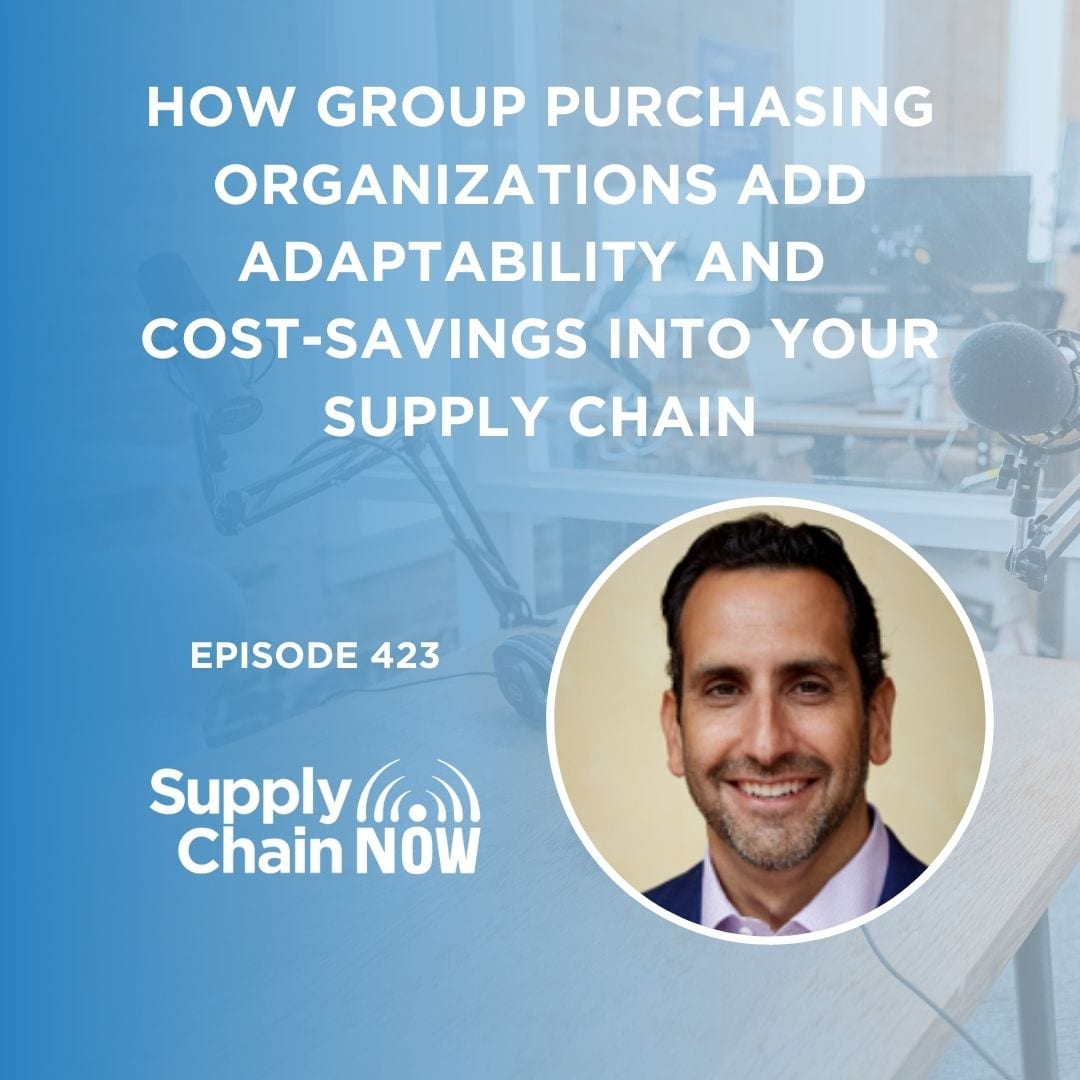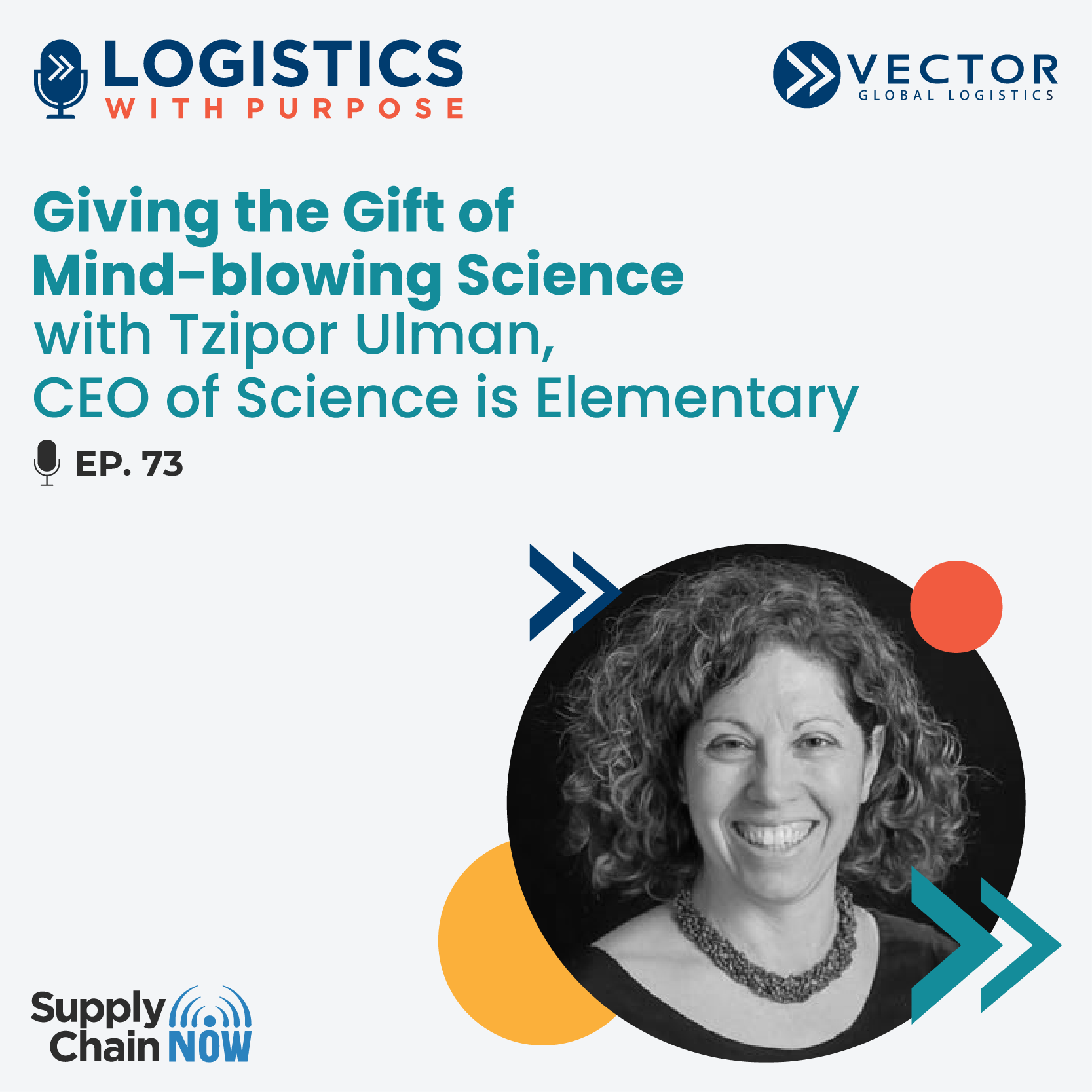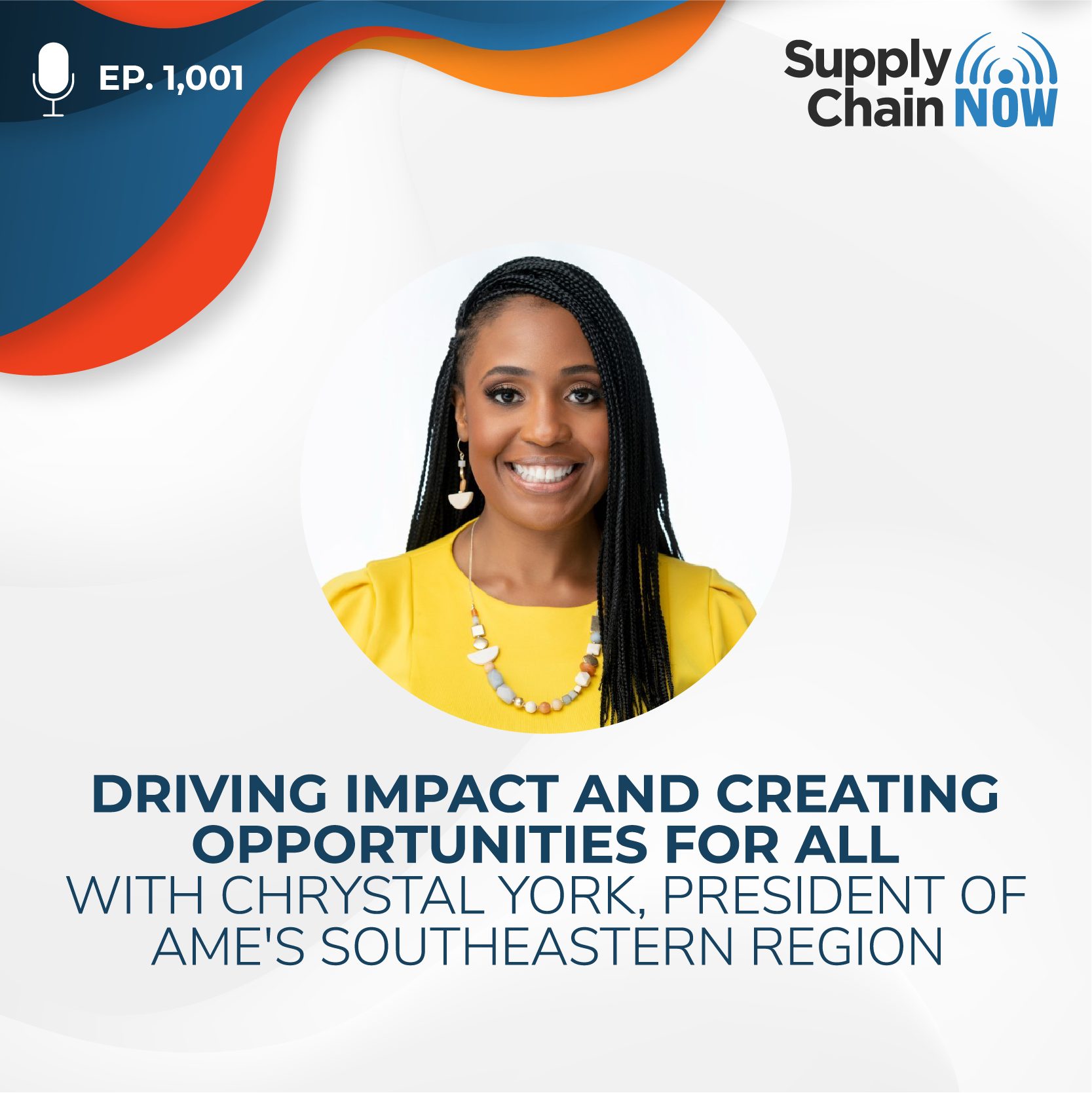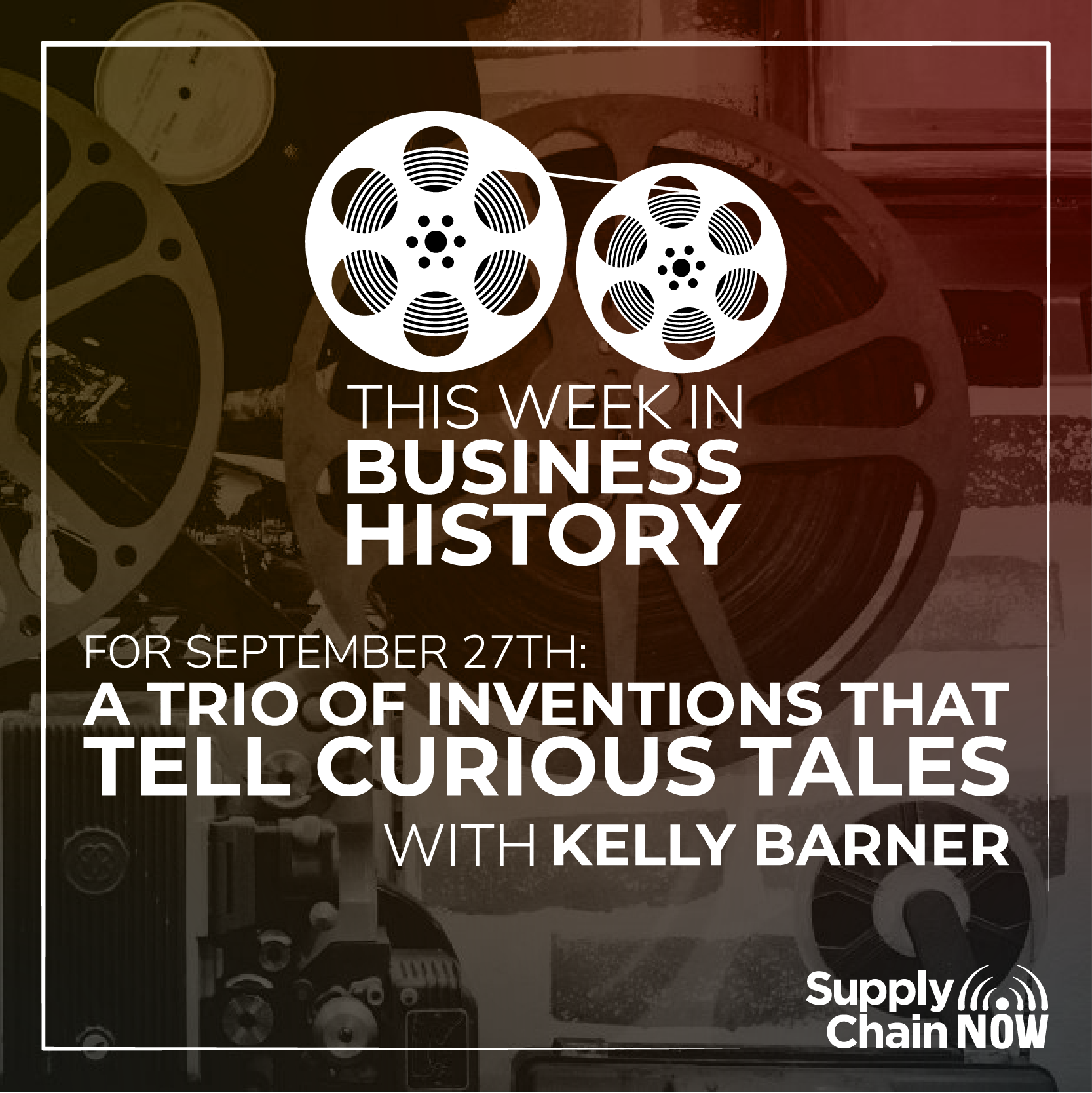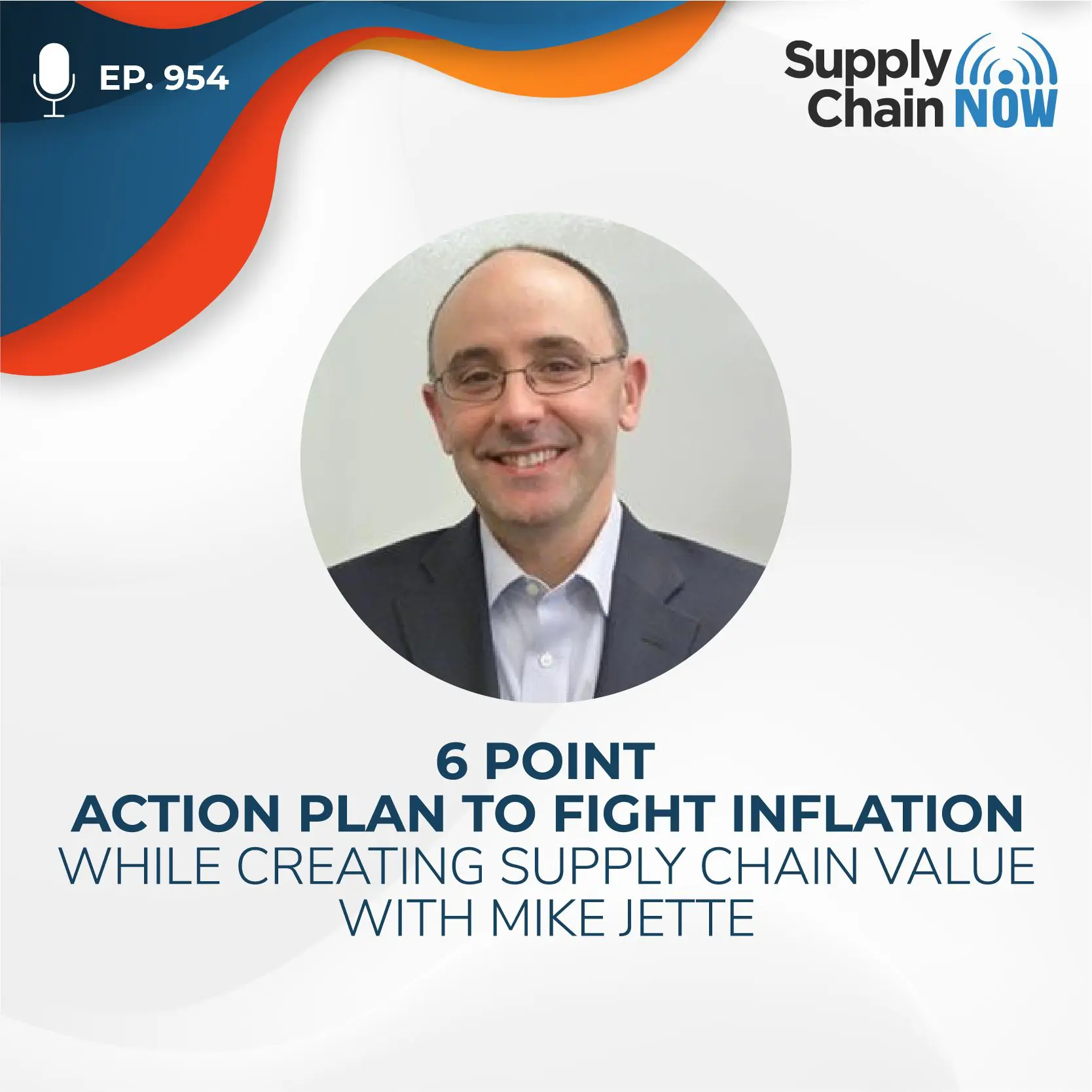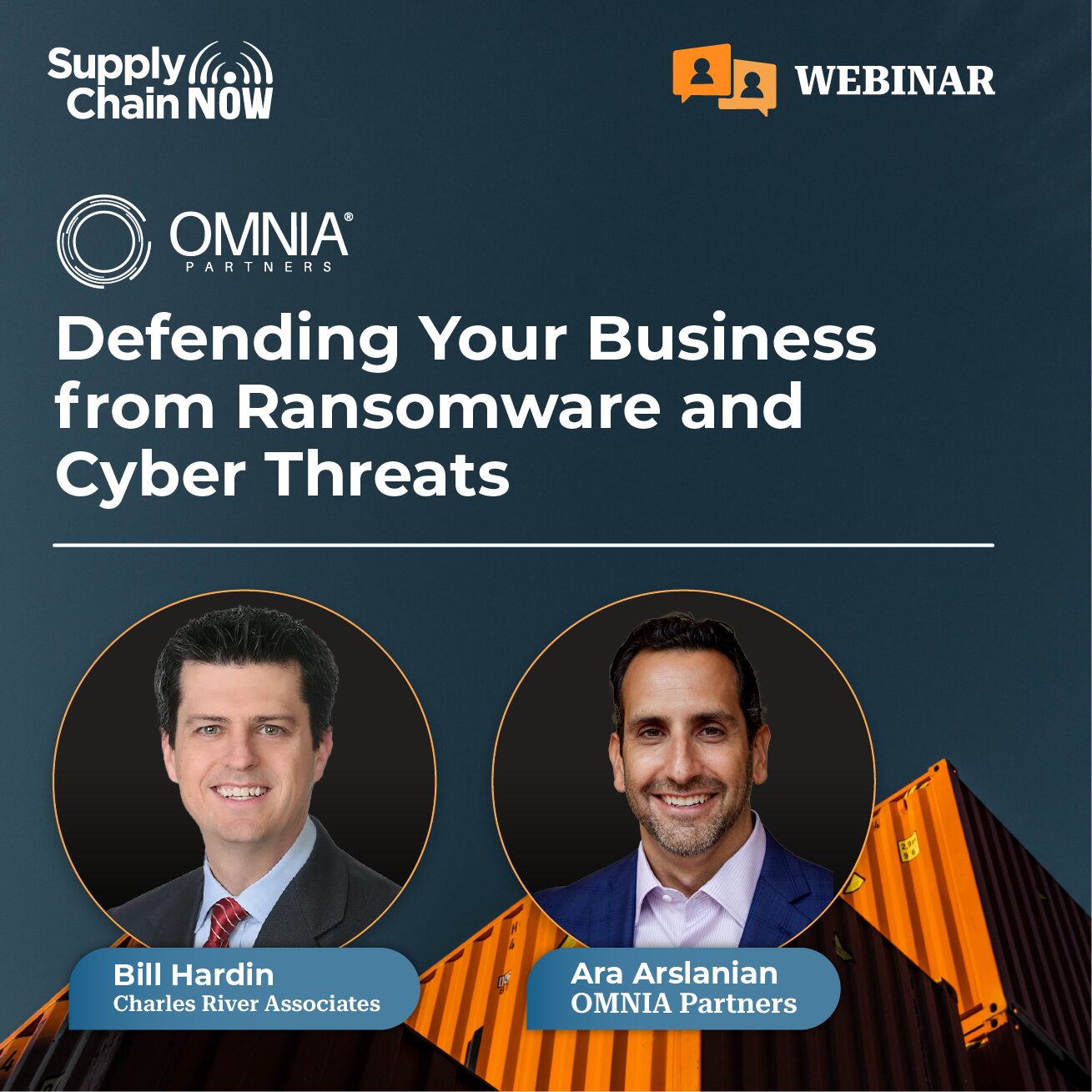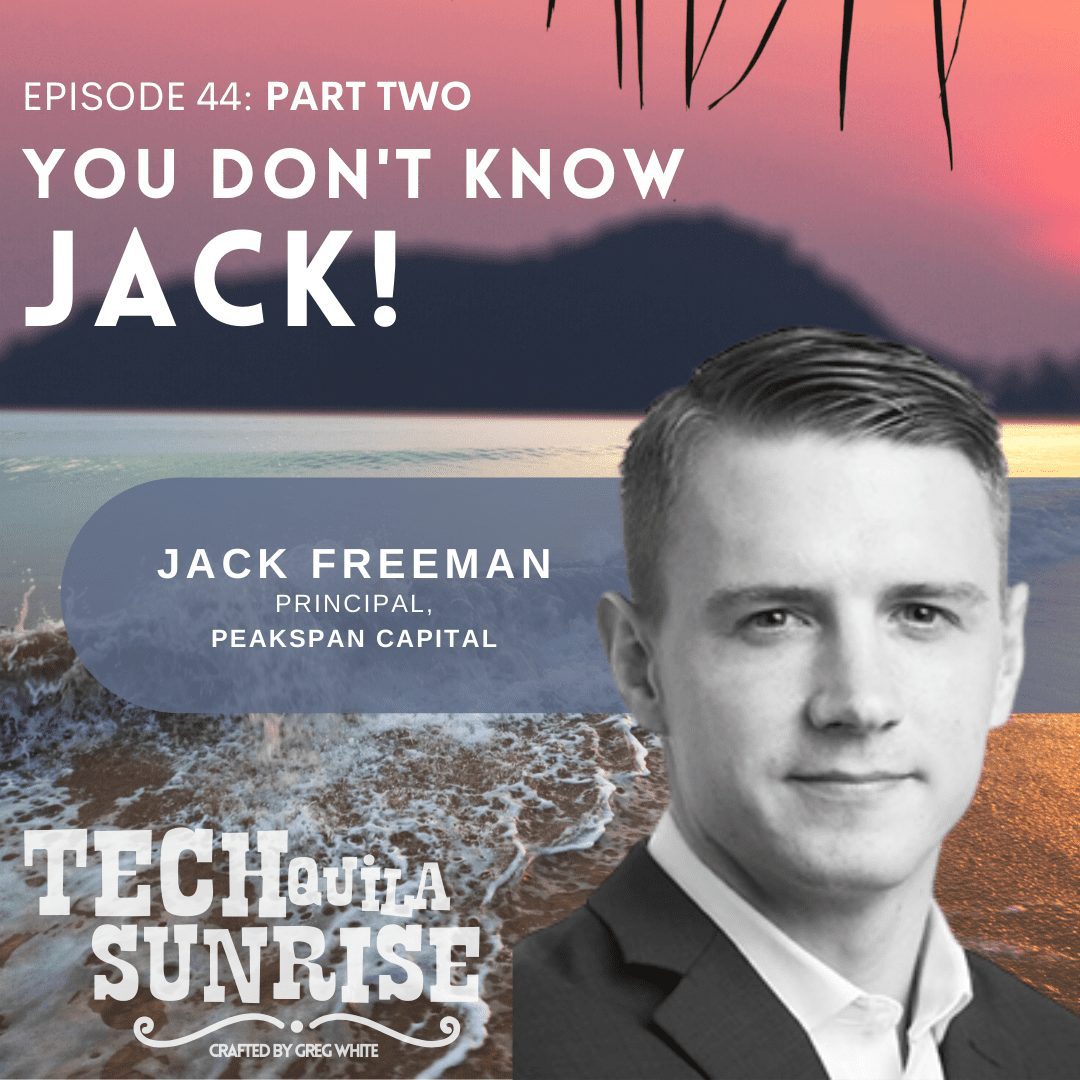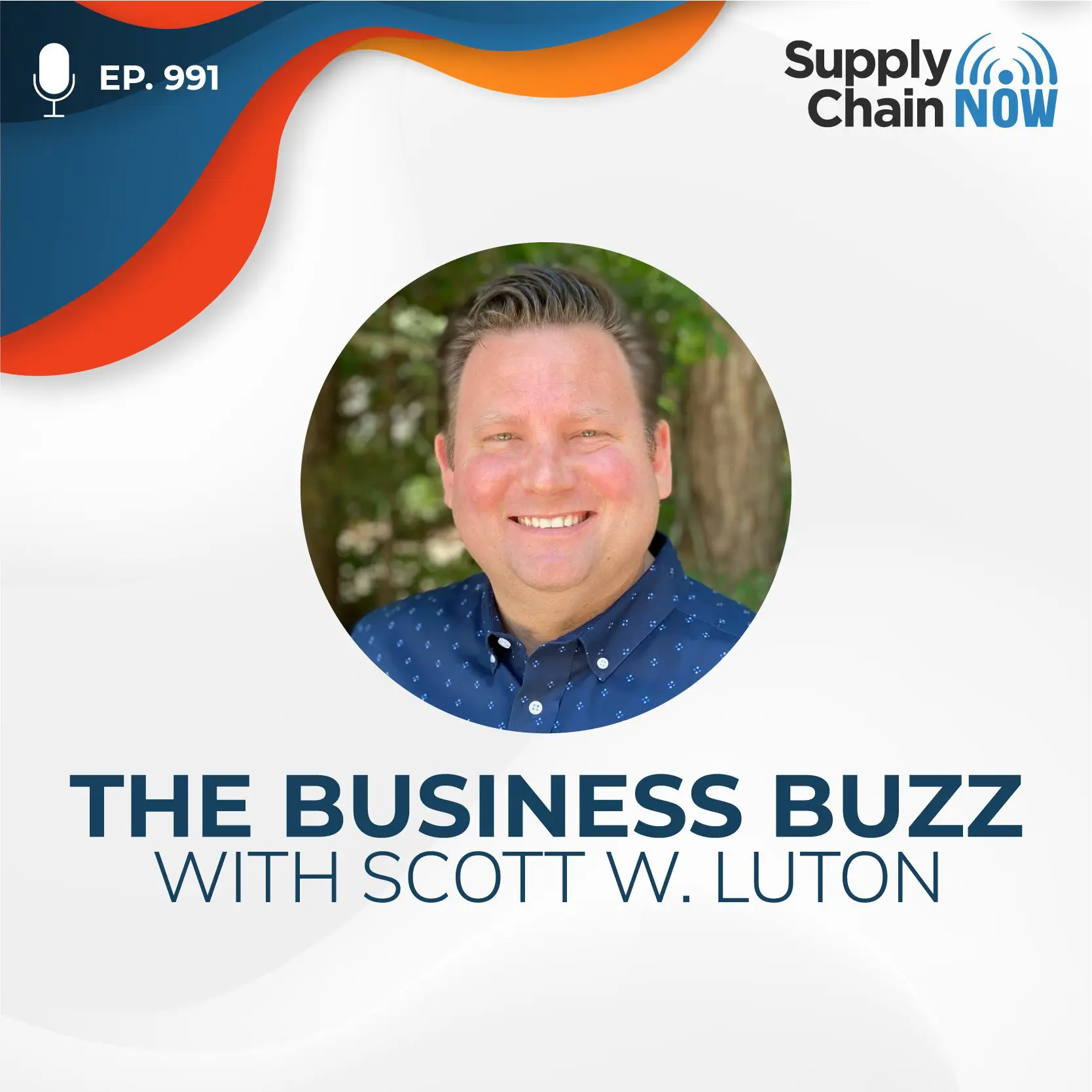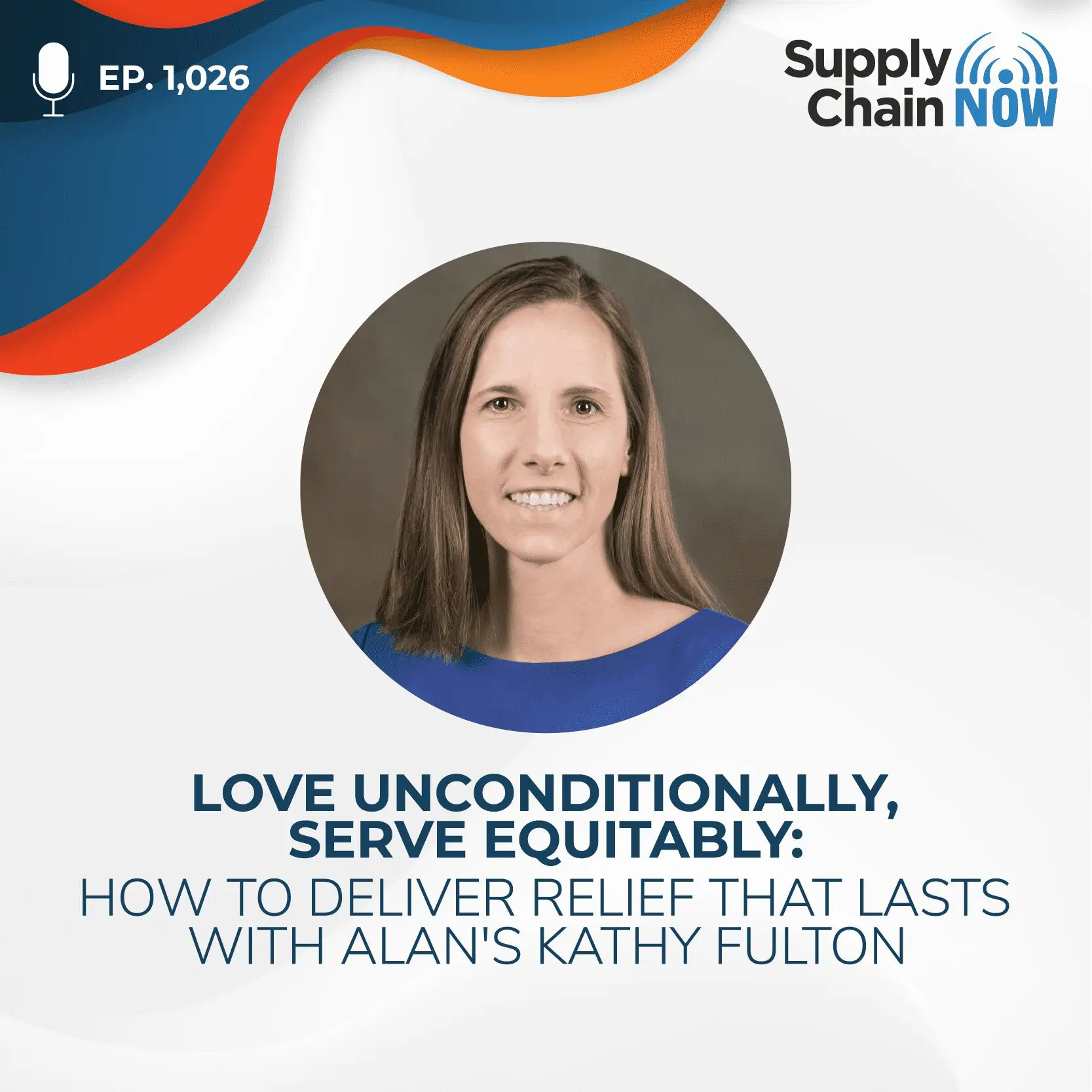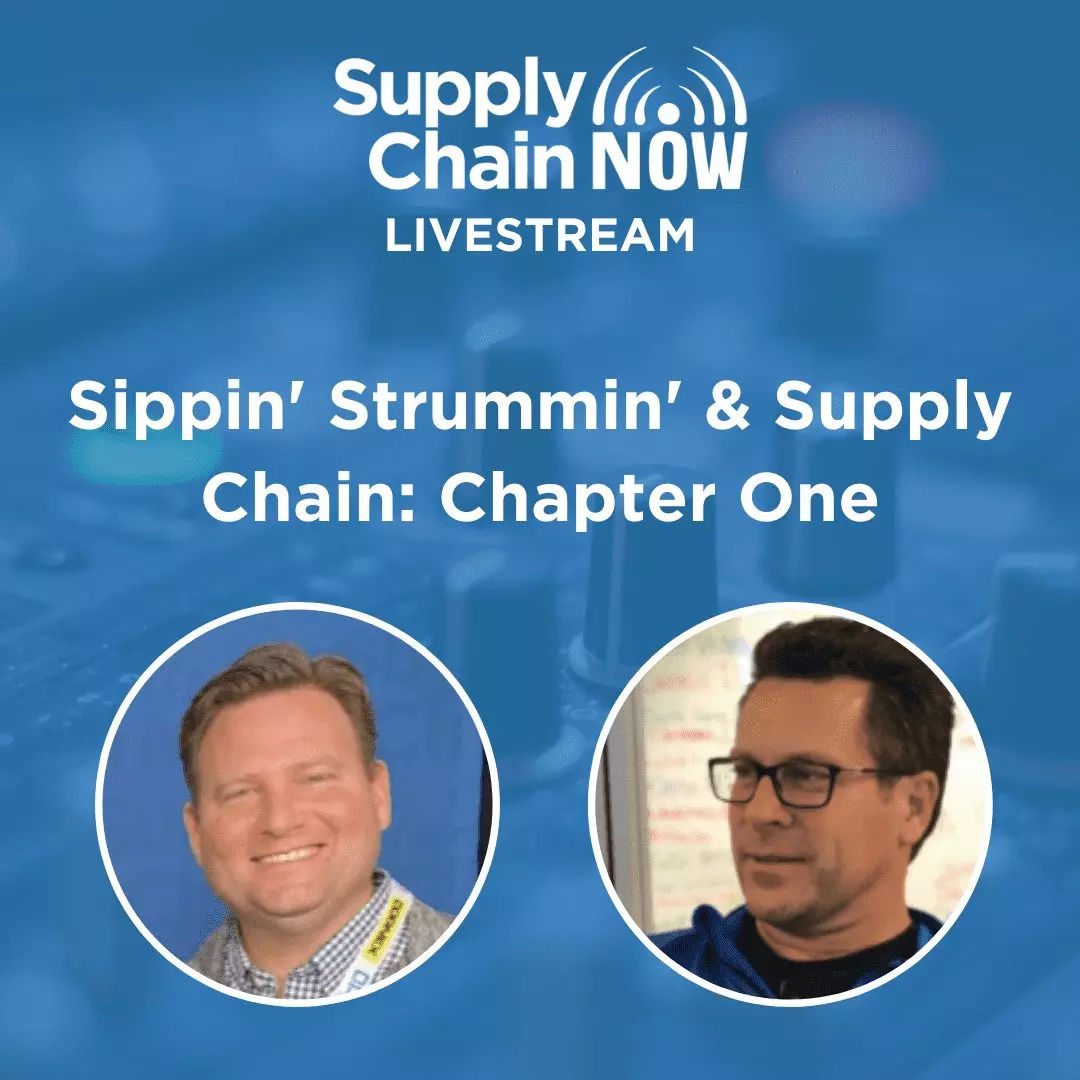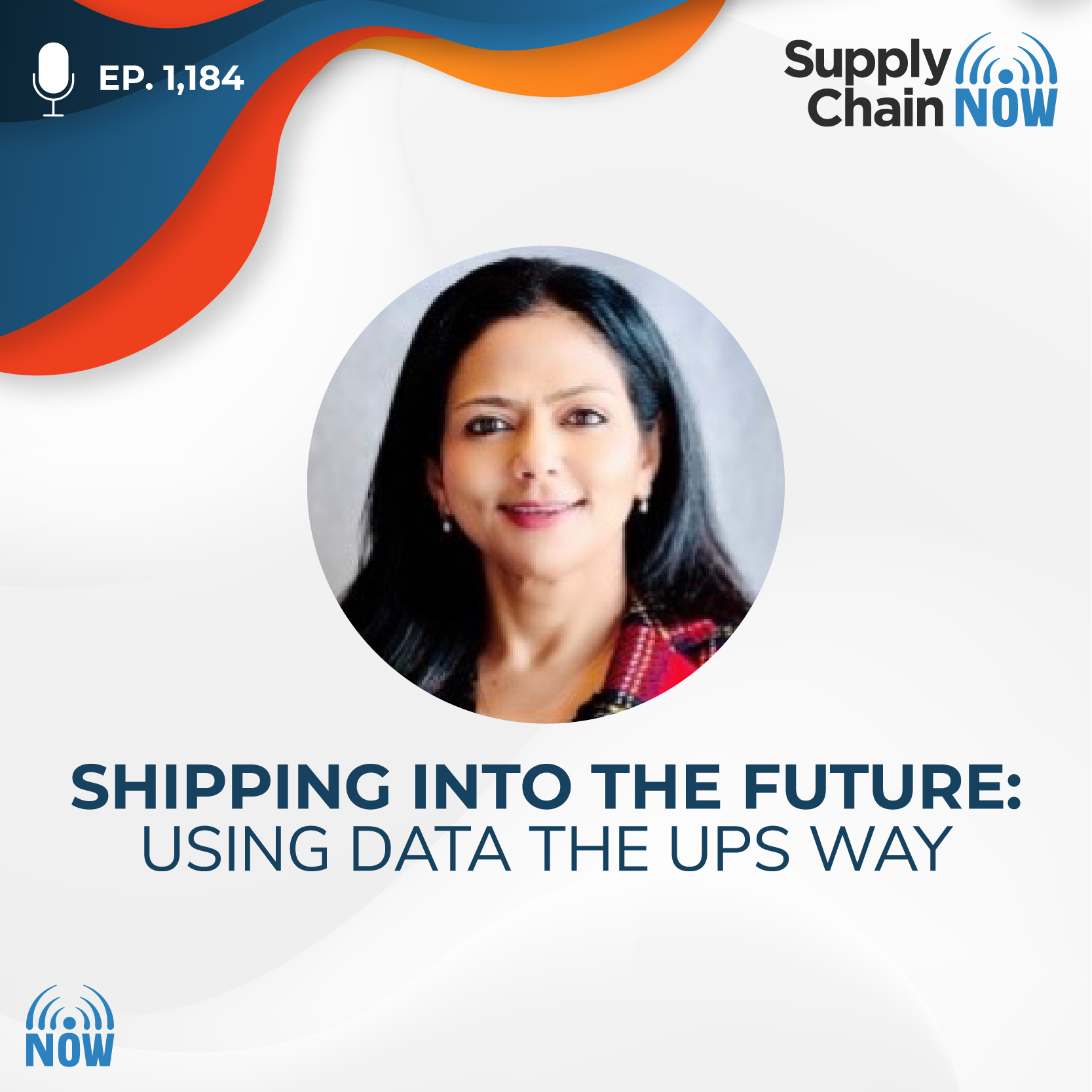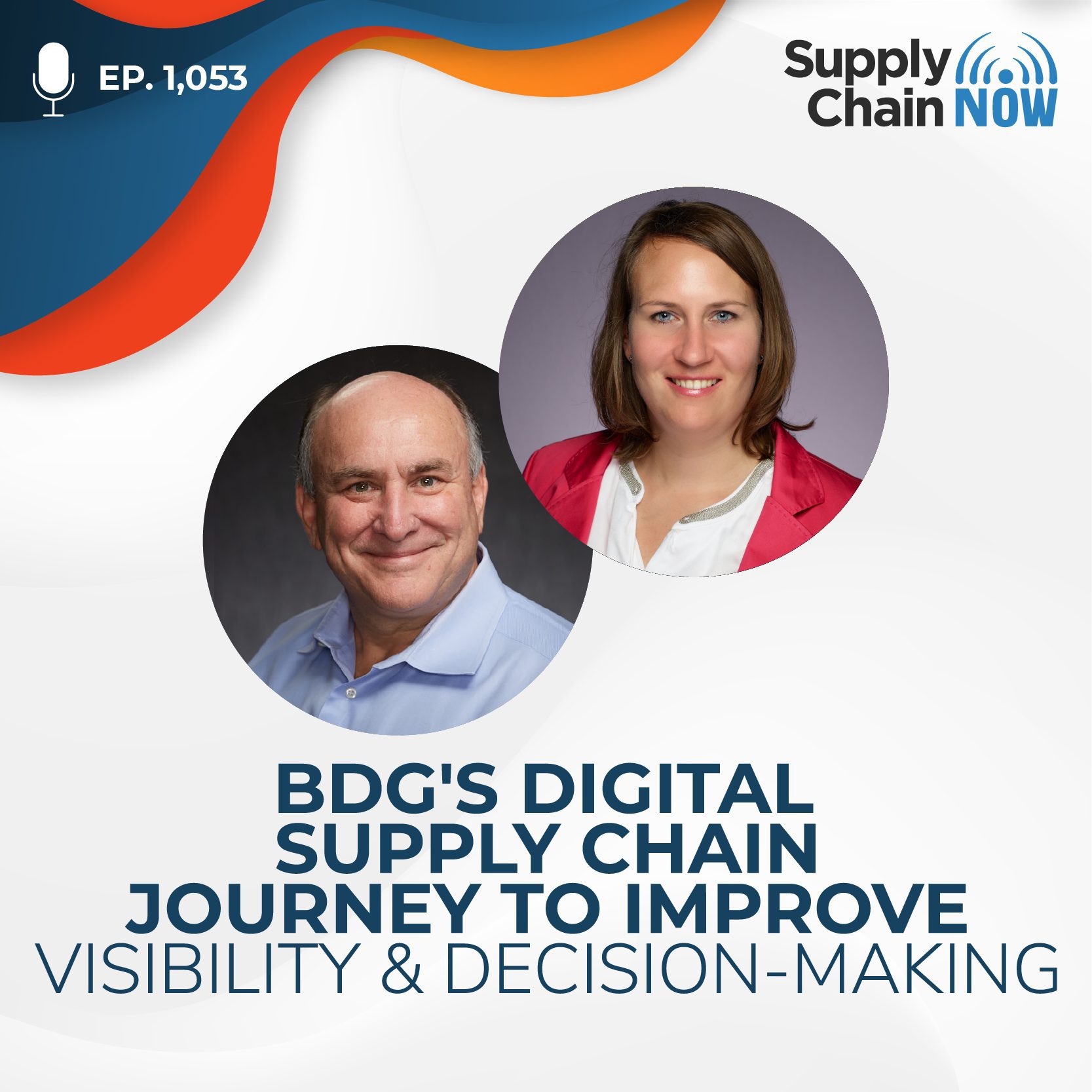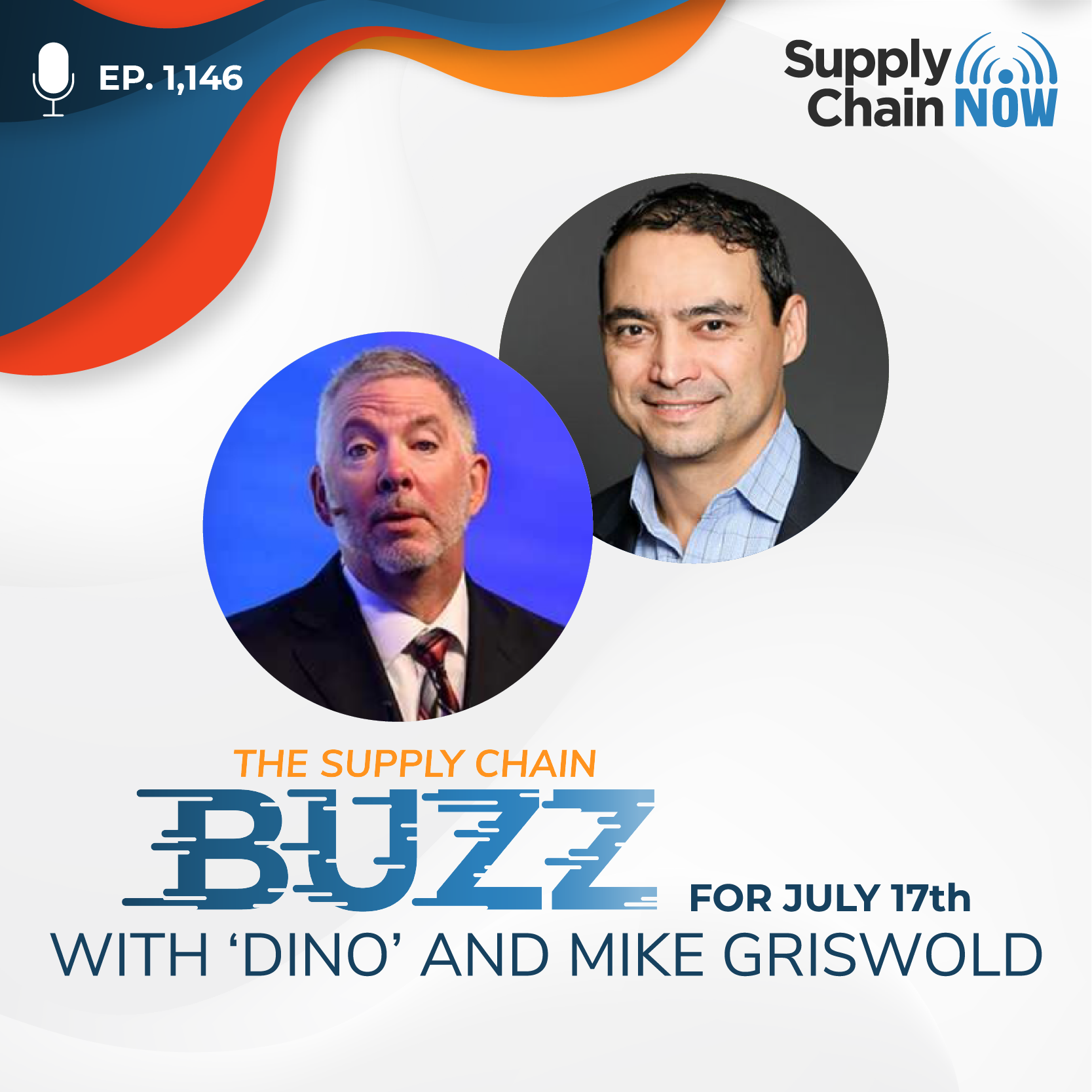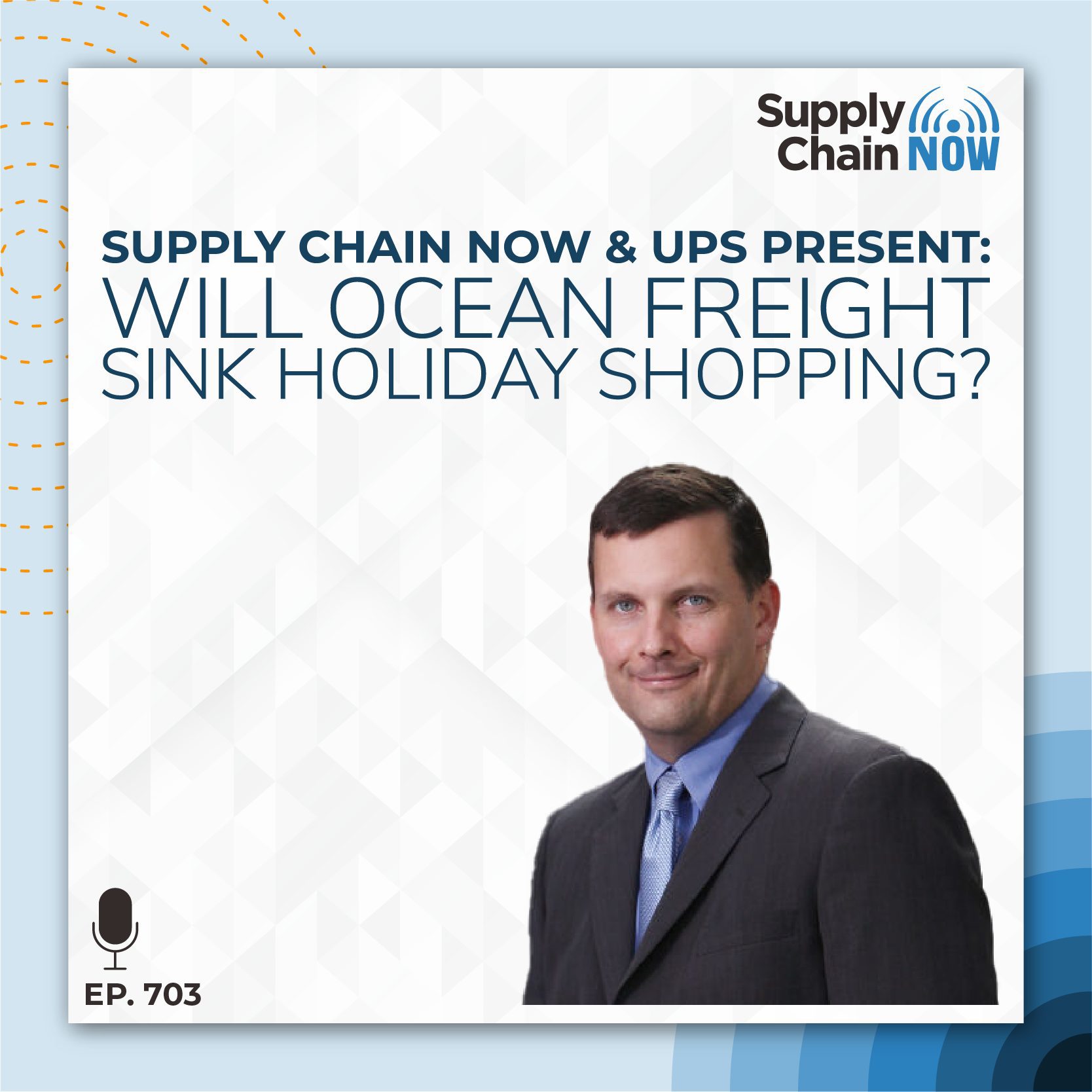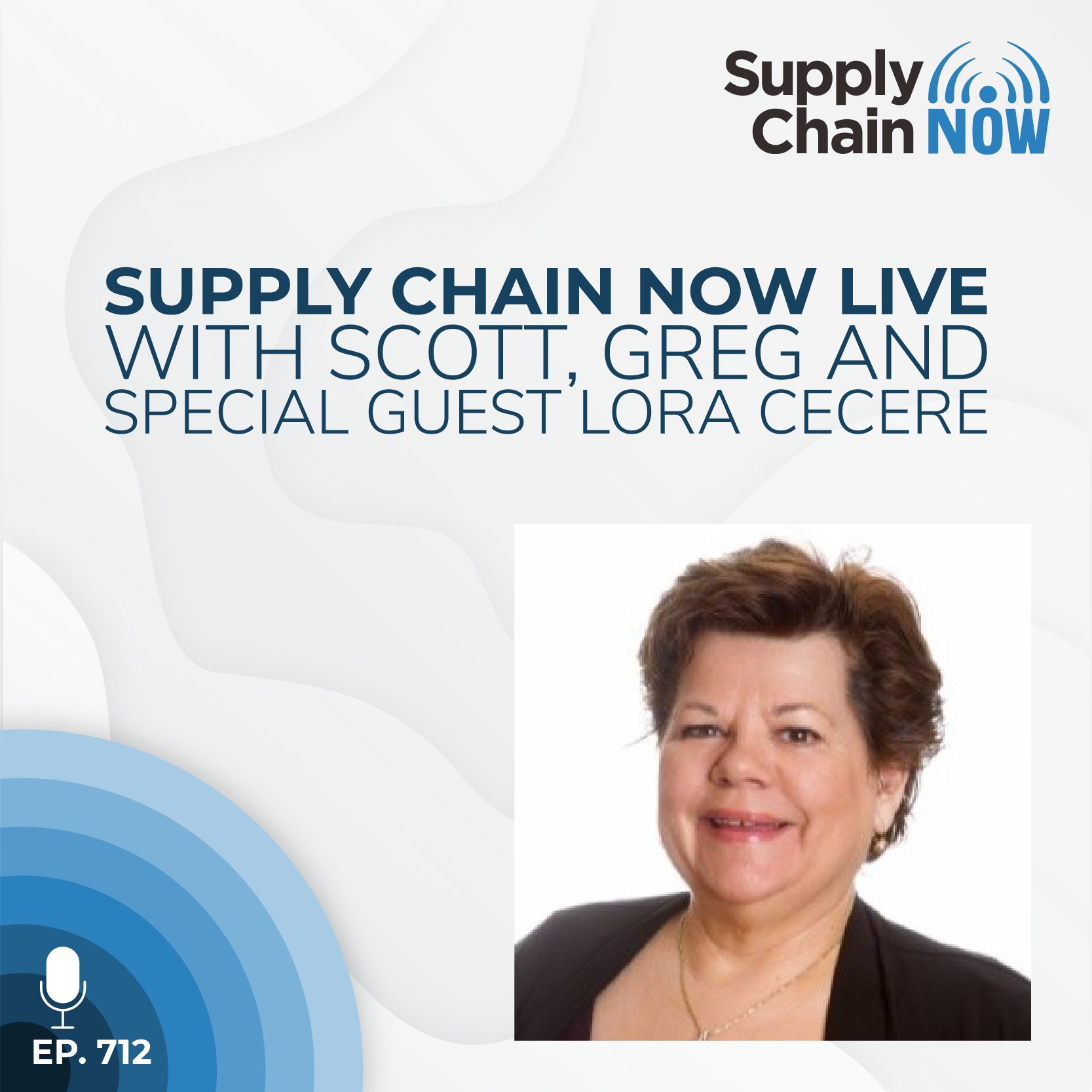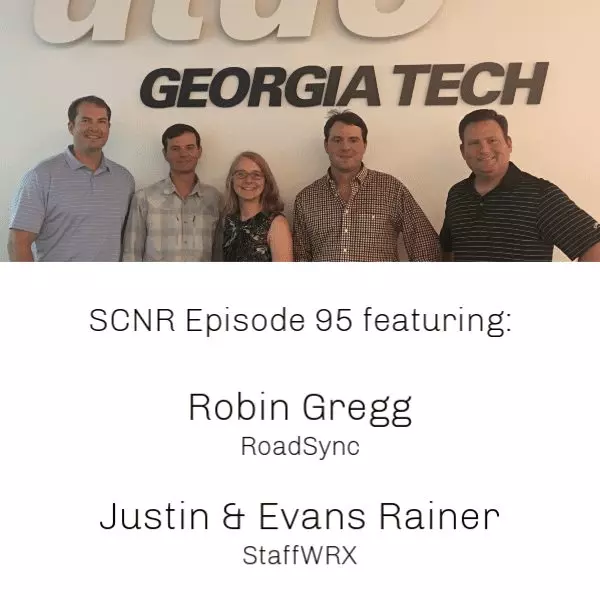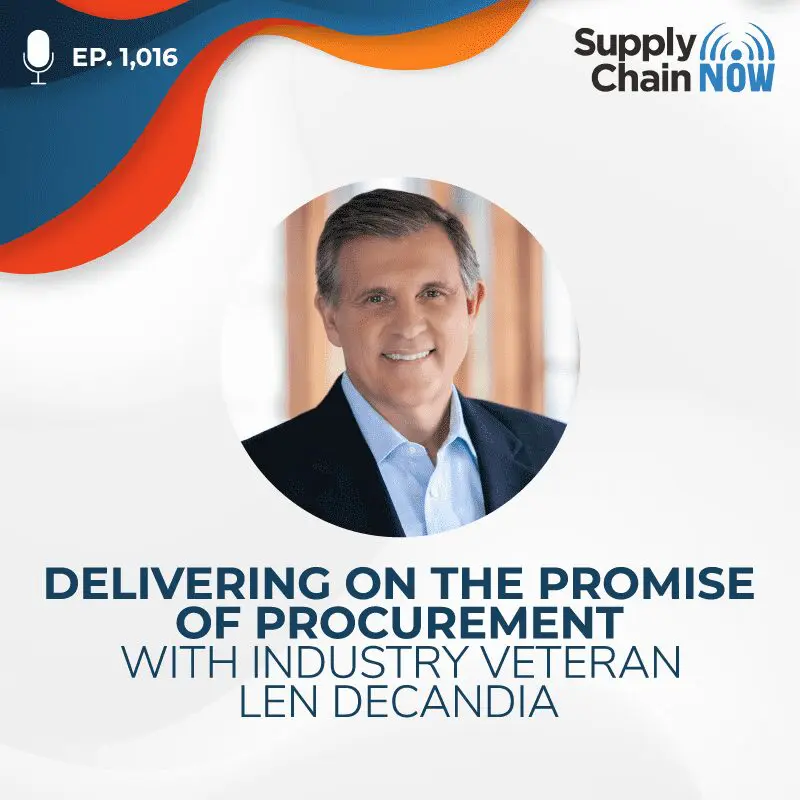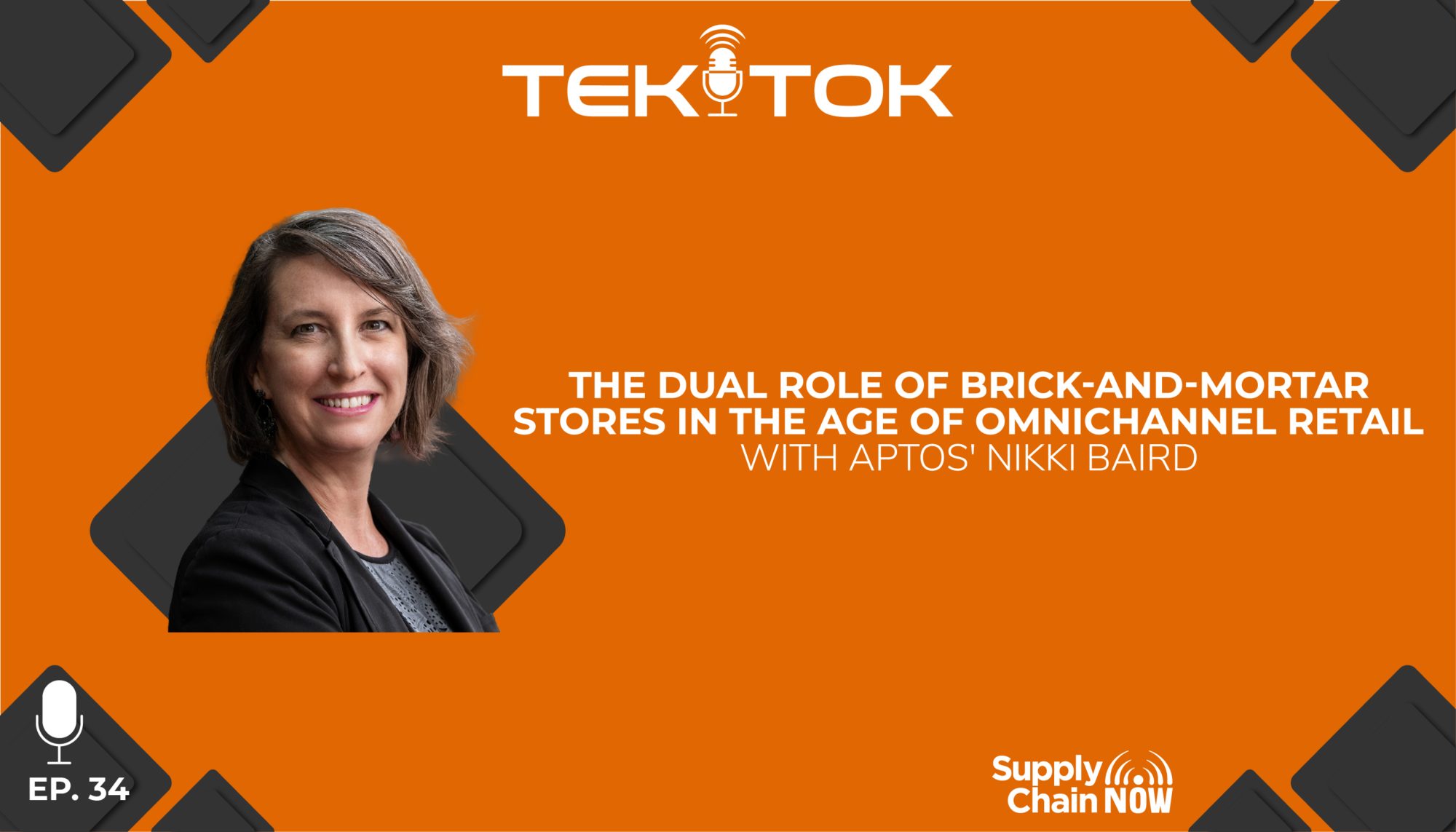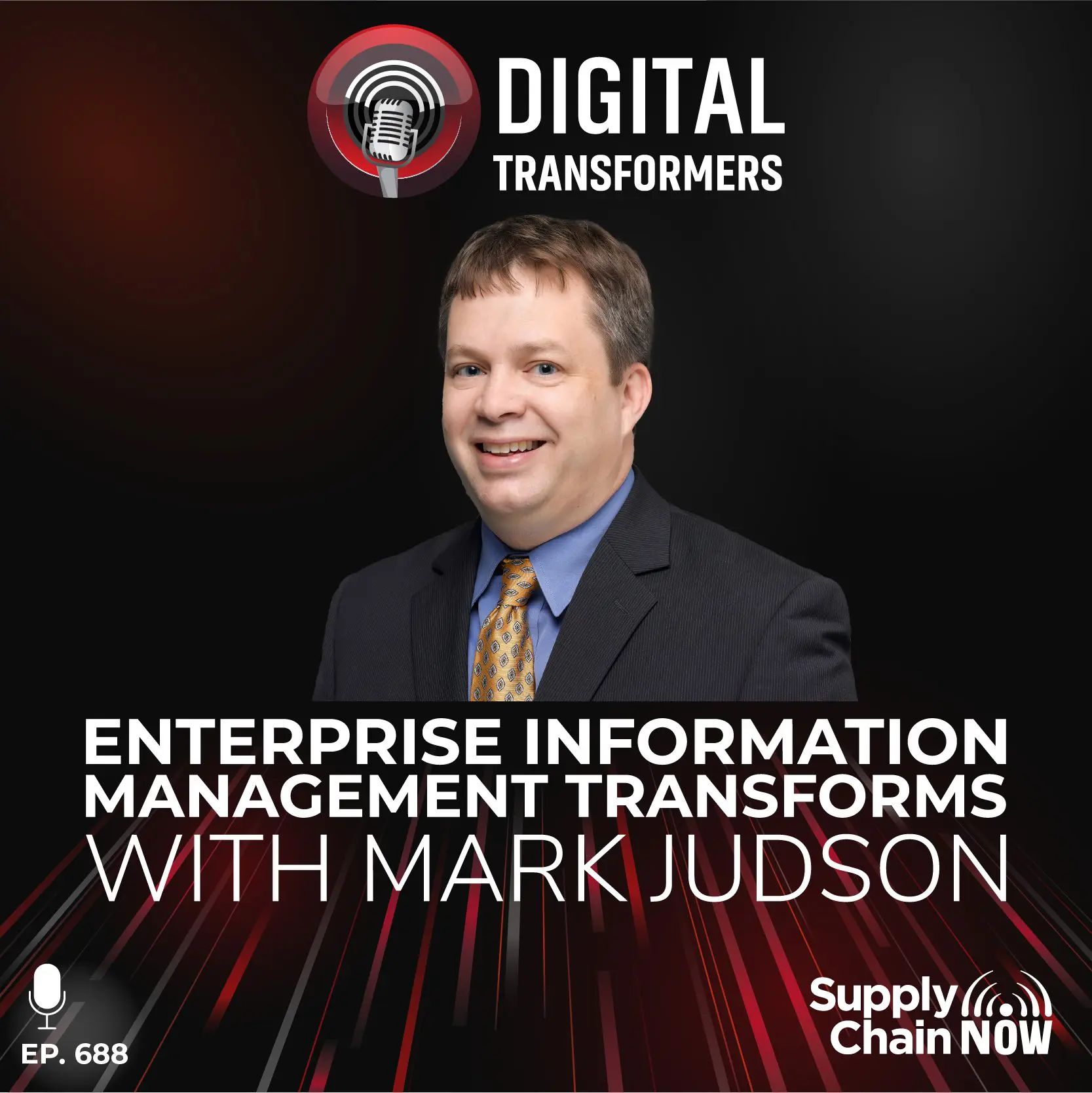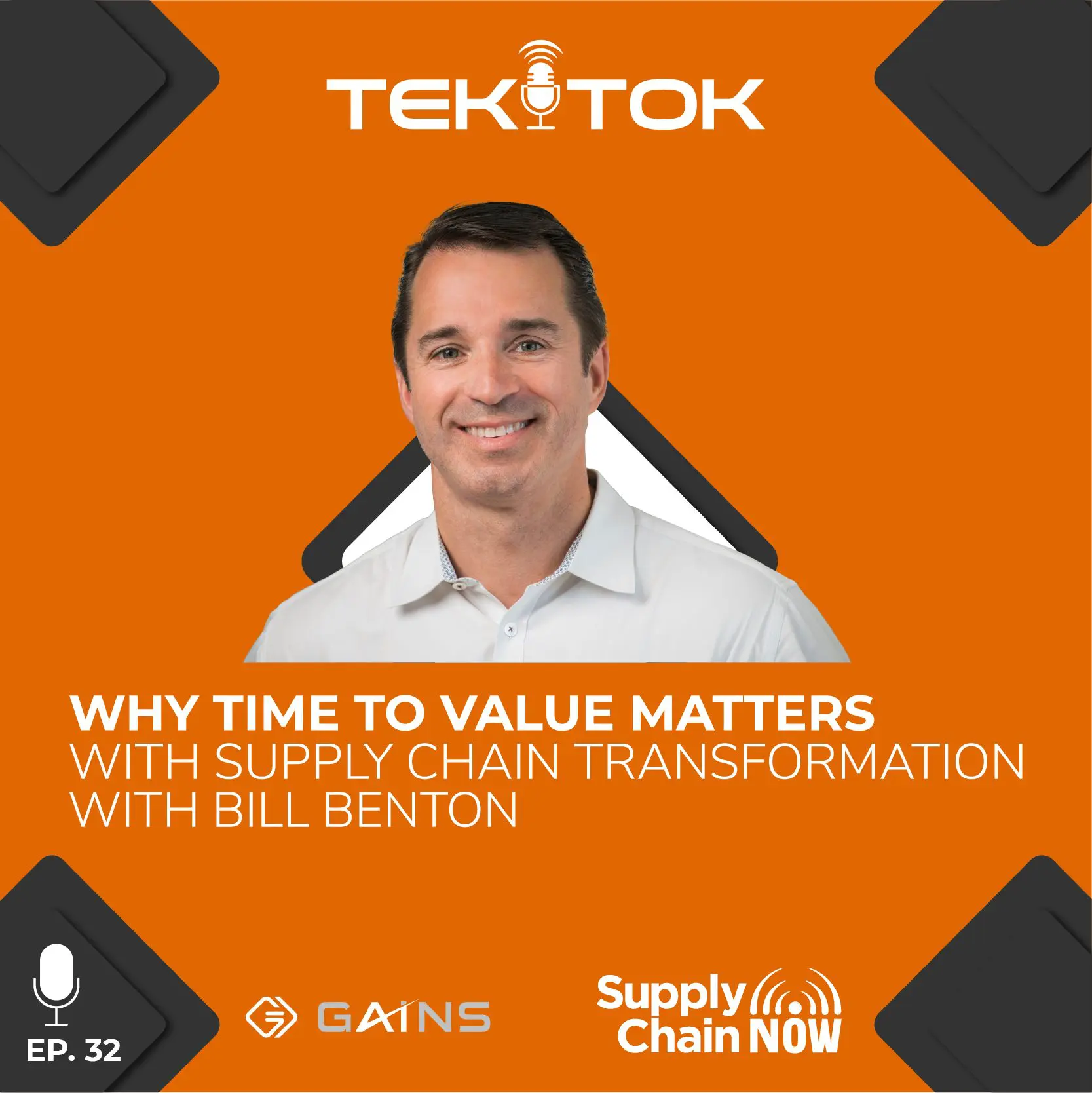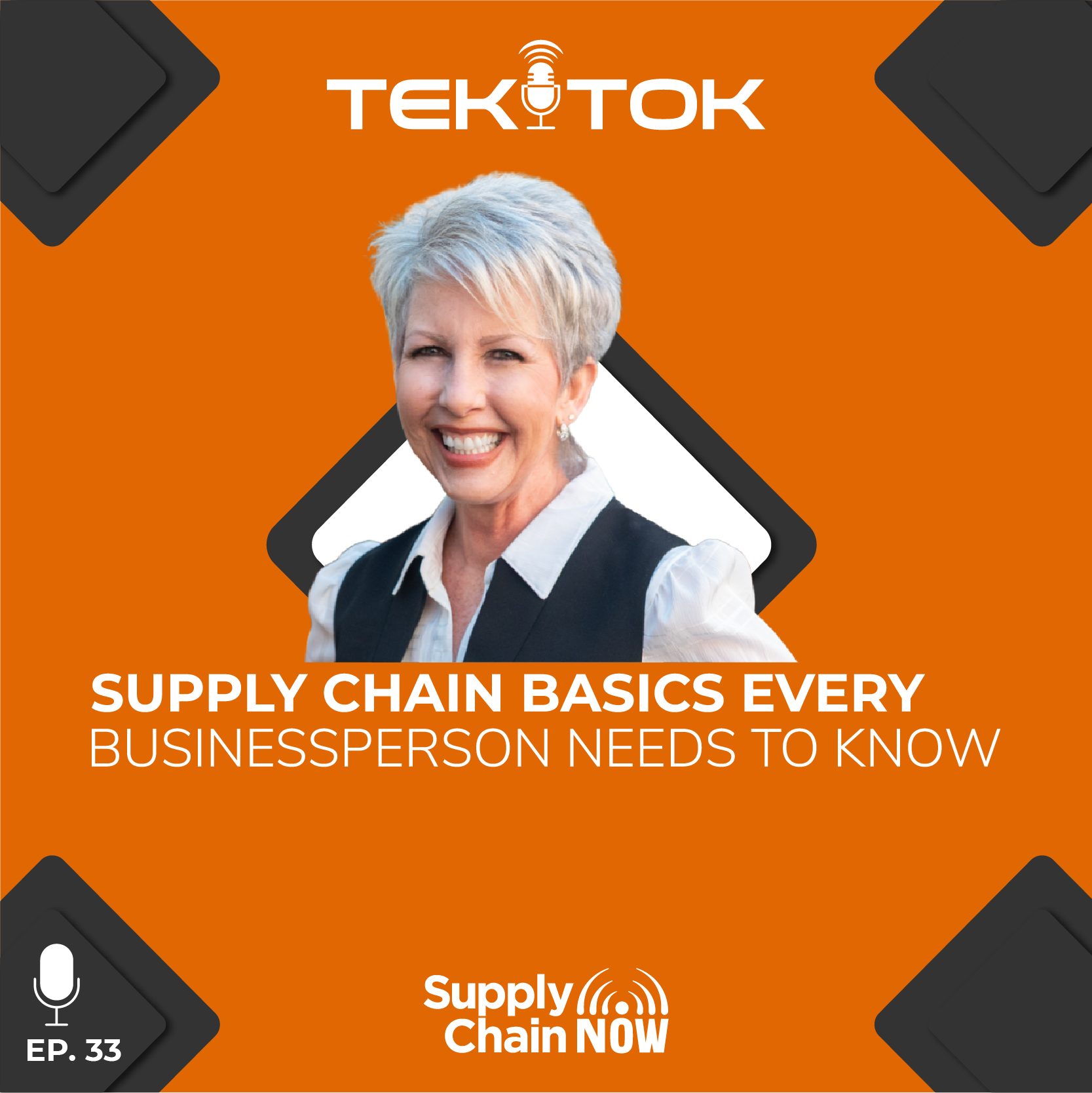Over the last 10, 15 years or so, it's become really apparent to retailers that the way the store was designed was to support a buying process that doesn’t happen anymore today. So, there's been a question about, do you invest to recapture that upfront part of the buying process or do you optimize the store to better fit within the part of the process that it fits in today? Retailers have come to the conclusion they need to do both...And so, fulfillment and using the store as an extension of the supply chain, if you will, has become a really important factor in maintaining what is this future role of the store.
-Nikki Baird, Aptos
Episode Summary
Retailers are seeking to seamlessly engage with consumers, having one experience, whether you purchase online or you purchase in person. With store pickups, click and collect, ship from the store, and even new incentives to get you back in the store, brick-and-mortar and those hard-to-find store associates are working harder than ever. So, they’re quickly becoming the lynchpins of that last-mile fulfillment and overall retail success. On this episode, we feature an expert who’s going to share insights and give us a better understanding of what’s happening with today’s leading retailers as they look to leverage their store operations in new and effective ways: Nikki Baird of Aptos.
Episode Transcript
Intro/Outro (00:01):
Welcome TEKTOK Digital Supply Chain podcast, where we will help you eliminate the noise and focus on the information and inspiration that you need to transform your business, impact supply chain success and enable you to replace risky inventory with valuable insights. Join your TEKTOK host, Karin Bursa, the 2020 Supply Chain Pro to Know of the Year. With more than 25 years of supply chain and technology expertise and the scars to prove it, Karin has the heart of a teacher and has helped nearly 1000 customers transform their businesses and tell their success stories. Join the conversation, share your insights and learn how to harness technology innovations to drive tangible business results. Buckle up, it’s time for TEKTOK, powered by Supply Chain Now.
Karin Bursa (01:13):
Welcome back supply chain movers and shakers! Karin Bursa here, your host for TEKTOK, the digital supply chain planning podcast. In this episode, we are going to dive into the ever-evolving role of the brick-and-mortar store. Retailers are seeking to seamlessly engage with consumers, having one experience, whether you purchase online or you purchase in person. With store pickups, click and collect, ship from the store, and even new incentives to get you back in the store, brick-and-mortar and those hard-to-find store associates are working harder than ever. So, they’re quickly becoming the lynchpins of that last mile fulfillment and overall retail success. With us today is an expert that’s going to share insights and give us a better understanding of what’s happening with today’s leading retailers as they look to leverage their store operations in new and effective ways.
Karin Bursa (02:20):
I’d like you to join with me in welcoming Nikki Baird. Nikki is with Aptos and she’s got a lot of insight into what’s happening with retailers. Nikki, thanks for joining us.
Nikki Baird (02:35):
Thanks so much for having me, Karin. Happy to be here.
Karin Bursa (02:39):
Nikki, your name may be familiar to some of our listeners here on TEKTOK, and I want to connect the dots for them. As a former industry analyst covering the retail industry and retail technology, Nikki’s name has appeared on a number of research initiatives over the years, and she has spent decades helping retailers to evaluate and prioritize technology investments and process improvements.
Nikki, let’s talk about your current role for just a minute. You are head of strategy for Aptos and have an interesting vantage point on what’s going on in this industry and I believe Aptos serves about a thousand retail brands. Is that correct?
Nikki Baird (03:36):
Yep, that’s correct.
Karin Bursa (03:26):
So, we’re not just talking about a handful of retailers here. We’re getting a wide spectrum of retail businesses. Nikki, this topic of leveraging brick-and-mortar for last mile performance is interesting. Share with us just a little bit about what you’re seeing in how brick-and-mortar footprints– the store operations — are changing today.
Nikki Baird (03:53):
Yeah, going back a bit of a ways to kind of pre-omnichannel, pre-internet days, the store served every role, right? It was outside of maybe the marketing that triggered a customer to come to a store. The store managed the whole of the shopper buying process, if you will. And, with online and with omnichannel, more and more of that activity shifted to digital and shifted away from the store. And so, over the last 10, 15 years or so, I think it’s really become apparent to retailers that the way that the store was designed was really to support a buying process that doesn’t happen anymore today.
Nikki Baird (04:41):
So, there’s been a question about, well, do you invest to kind of recapture that upfront part of the buying process or do you optimize the store to better fit within the part of the process that it fits in today? And, I think retailers have come to the conclusion that they need to do both. Of course, you can’t just have an easy answer, right? So, that means that you have to do more to provide the kinds of experiences upfront in the shopping process like events or education in separation kinds of things, the kinds of things that aren’t easily delivered over a digital channel. And, you also need to provide more things that happen under the store’s umbrella that keep the profitability and the economics of the store, you know, kind of balanced or profitable at a minimum. And so, fulfillment and using the store as an extension of the supply chain, if you will, has become a really important factor in kind of maintaining what is this future role of the store.
Karin Bursa (05:47):
That’s a really good point Nikki. Today, the brick-and-mortar store today is truly multifaceted. It’s not just my brand advocate and the place you go in order to purchase product. It really is a way to connect with consumers, but also as you point out, Nikki, that role of the store is changing. And, historically, we tried to minimize the backstock or the storage area. Today, our needs are a little different. How are retailers using that store footprint, that real estate, differently today?
Nikki Baird (04:41):
You know, purely from the supply chain side of things, that real estate, it used to be that you thought of it as the last, like you sent inventory there, that inventory stays there until it walks out the door in a consumer’s arms. And, anything you do adds cost that you don’t want to have to handle. But the cost dynamics have changed really substantially over the years, especially, there’s just been such this huge demand for warehouse space. Warehouse space has to sit in specific locations from a technology or technology from a transportation corridor perspective, right? Like, there’s only so many good places to put warehouse capacity. Stores, kind of, are pretty close to customers. That’s what they were designed to be for. And if you’re not going to use that space as selling space, it actually may be a better cost profile to send inventory there strategically, and then look at how to get that inventory into local customer’s hands. It actually can be more cost effective to consider the store as an extension of your own overall supply chain as opposed to thinking of it as that endpoint, you know, inventory comes in and then we never touch it again. It’s only the customer who touches it after that.
Karin Bursa (07:47):
It’s interesting that you say that it can be more cost effective. That’s a little surprising to me because I still think of brick-and-mortar retail in the traditional sense where it is my most expensive real estate to staff and manage. If I’m getting multifaceted or multipurposed, maybe my cost basis looks a little different.
Nikki, I remember when Walmart rolled out its initiative for online business, with order online, pick up in store, or curbside. And this was probably 2018 or 2019, certainly before COVID 19 hit. Walmart’s online grocery initiative drove a change in how the front of store retail space was leveraged. They put these big locker systems in in order to stage customer orders for pickup — which is as many of us know from a supply chain perspective is premium retail real estate where I normally want to get that consumer engaged on entry or exit.
Karin Bursa (08:52):
Now, one of the things that Walmart found is that engaging with consumers online, it actually drove new customers for Walmart and significantly the average basket value went up nearly 250%. So, if you were to shop in the store, the average basket was about $50, 2019 numbers before COVID, before we all went online. But let’s think about that for just a minute. The average online purchase basket was about $125. So, very quickly, Walmart was getting new consumers and bigger baskets. But that’s one example of a very significant physical change in a retail footprint that quite honestly has continued to evolve for the last couple of years.
Nikki Baird (09:54):
There’s additional dynamics to that as well. Like, there’s some grocery retailers who’ve seen not bigger baskets on average, but more frequent baskets that when you totaled them all up over the typical month’s worth of purchases from that consumer was a much greater lifetime value for that customer. So, you know, and then in the non- grocery space, we’ve seen some retailers find that customers that they first acquire in an in-store experience actually have a larger lifetime value than customers that they’ve acquired online. So, that I think speaks to the value of the store in activating that customer and getting them to be a new customer that then has a greater brand affinity than maybe you’re really capable of delivering in an online channel.
Karin Bursa (10:45):
So, let’s talk about that for just a minute. If I’m a native direct-to-consumer retailer (born digital eCommerce) and now, I’m starting to open brick-and-mortar store locations, do I have an advantage? Do I have the opportunity to rethink these store operations from scratch? Nikki, is that true or does a traditional brick-and-mortar retailer have an advantage?
Nikki Baird (11:10):
I think a traditional brick-and-mortar retailer has the advantage in terms of the locations and the location strategy and the fact that they can tap into that immediately. Right? They already have that distribution. So, now, they just need to optimize that distribution as opposed to try to build it all out from scratch. However, I will say, I think that those digital native brands that are opening stores right now, they do have an advantage because they can rethink the store in terms of all of these things that the store never had to support before, like that curbside pickup or even the ship-from-store or events happening in the store. All of those brick-and-mortar retailers who have this sort of traditional storefronts, they’ve got some remodeling to do.
Nikki Baird (11:55):
And, I think they have – you know, they have more conservativism I’ve found in terms of experimenting in stores because they just have such a big footprint that they ultimately have to move that they, you know, they don’t want to find something that works wonderfully but requires modeling all, you know, 800 stores or whatever. The business case for that gets clear pretty quickly. Whereas if you can design it from scratch, then it’s a little easier to pull off. So, some of the established brick-and-mortar brands we’ve seen, you know, like open a new format and they position it as a new format so that they can kind of reset customer expectations about what that store is going to be like, and then, you know, can eventually absorb the rest of their estate into that.
Nikki Baird (12:43):
The North Face actually or VF brands is a great example. They have a store, concept store, that they’ve opened in Milan, which actually has multiple VF brands underneath. So, it’s the North Face and there’s a couple others that I can never get right, Timberland, and I think there’s one more. And that idea of this is a store designed for an omnichannel world and designed for that digitally savvy consumer is really important. And then, they’re testing that before they kind of take to all the other brands that they have under their umbrella.
Karin Bursa (13:18):
That’s a great example. If I heard you correctly, you mentioned that some of the established brick-and-mortar retailers tend to be more conservative with their redesigns. Did you say that?
Nikki Baird (13:33):
They’re more conservative in how much they test or how radical they get in what they want to test. Right? They’re concerned about – you know, the weight of the brand, like part of the value of their company is the brand promise that they’ve established with their customers. And so, typically rather than taking an existing format and really messing on with it, they tend to sort of open something off to the side. It’s a little less risky in terms of messing with customer expectations.
Karin Bursa (14:03):
That makes sense. And even with some the digital natives, are more aggressive or tolerant of a “fail fast strategy.” The first thing that comes to mind for me is Amazon. I recently saw that Amazon announced that they’re closing 68 brick-and-mortar locations in the US and in the UK. Right? And, these are a bunch of different formats that they’ve tested and they just haven’t lived up to expectations or the growth at those locations has been significantly slower than they expected. And, of course, it’s in Amazon’s DNA to try a lot of things and fail fast.
Nikki Baird (14:56):
Yep, totally.
Karin Bursa (14:58):
So, clearly the physical changes are happening. The physical store is changing. Now, we’re also increasing or continuing to evolve all of the different shopping options, whether it’s in person, whether it’s buying online and pick up in store, curbside, a hybrid of the two, handling returns, you know, all of these things, and many retailers have struggled to really have one consumer experience, one customer experience, what’s happening in that vein just as we think about that consumer engagement. And then, I want to talk a little bit about what we’re asking of the typical retail associate. But let’s talk about, you know, that brand consistency, if you will, or that shopping consistency. What can be done in that area?
Nikki Baird (15:52):
I think one of the biggest challenges you have to acknowledge is payment. So, when you buy something online and you pay, you could potentially be using a completely different payment service than if you went to that same retailer store and paid with your credit card in a store. And so, when you have that kind of disconnect that like breaks everything else down the road, right, you want to buy – you bought something online and you want to return it to a store. You can’t use the point of sale. You can’t just give them your card or you can’t just have them credit the card that you used, right? Like, all of these complicated things. Or, you want to buy something in a store that you cash and carry and you want to, you know, also have something that you’re going to shift to your home. Sometimes that’s two completely separate transactions with those two completely payment systems. So, that part of it I think is already tough.
Nikki Baird (16:49):
And then, I would say that retailer’s inventory strategies are not nearly as sophisticated in taking advantage of omnichannel as they could be so they tend to sort to an e-commerce DC and they treat it like just a massive store. In fact, a lot of them when you look at their reporting, their e-commerce operation is store number, you know, 999 or whatever. So, they treat it like a store from that perspective. I think the pandemic underscored just how much value there is in having fluidity between do I actually use my e-commerce DC to fulfill this order, or should I pull this from a store? And, there’s lots of advantages to pulling that inventory from a store as long as you have a holistic inventory strategy that recognizes that some of that inventory that you’re sending the store is probably going to go out of the back of the store instead of out of the front of the store. So, there’s still lots of challenges.
Karin Bursa (17:48):
There’s lots of interesting stuff in there. And I know you and I could really dig into some of that inventory policy management and the dirty little secret that a lot of retailers still maintain to buying organizations, one for e-com and one for store. But I really want to kind of get back to this idea of the last mile and what’s happening at that brick-and mortar-store and how it’s driving additional changes. Right. So, what we’ve just discussed here is that our retail associates not only have to be good at merchandising, right, and engaging with the public or the consumer they come in, but we’re also asking them to do some inventory management and some warehouse picking and maybe even some curbside delivery. Let’s talk about how these changes are impacting, the profile of the typical retail associate.
Nikki Baird (18:49):
Yeah. I think, you know, in line with kind of the comments that we opened with that, the store, just what we expect out of a store has changed, but it kind of went through this shrinking period where we didn’t expect a lot out of store because digital was kind of handling a lot of that part of the process. And, I think in line with that, we saw retailers, expect patience of their store associates also get smaller and that’s completely out of the window now. I mean, both in terms of the labor market itself, if you’re going to pay somebody $20 an hour to be on a store floor, then you kind of hope that they will be as productive as you can possibly make them. But they’re also seeing all of these things being thrown at them in terms of, I have to pick orders. I have to help people who are shopping in my store when I’m picking orders. I might have to actually deal with the potential of a substitution, something that does not happen in a warehouse, right? If you go to pick something in a warehouse and it’s damaged, or it’s out of stock, you know, there’s something wrong with inventory, you cancel the order. When that happens in a store, especially if you have a customer who’s driving there to pick it up, you have a decision to make about what you’re going to do about that. And increasingly you have to rely on that frontline store associate to be the one to make that decision and to figure out how to make that experience a good one for when that customer does come in, or if they have to contact that customer because something went wrong. So, we do expect a lot more out of store associates today, I think, than we’ve ever expected out of them because there’s so many more things that they’re being asked to do beyond, I hate to say just selling. That’s a skill all in its own. But it’s only one compared to the 10 or 20 that a store employee has to manage today.
Karin Bursa (20:36):
Nikki, what can a retailer do to simplify that? How can Aptos help store associates be more productive wearing multiple hats? Is it one big hat versus lots of hats that get changed from time to time? Expectations have changed. If I’m going to pay a retail associate $20 an hour, I know Target mentioned paying as much as $24 an hour for some starting positions in certain regions, certain locations, that’s significant. You’ve got to move a lot of product in order to support that kind of an investment in store associates. How do we help them be productive and retain talent? You’re supporting me. You’re giving the tools I need. What can you tell us there?
Nikki Baird (21:54):
Let’s go back to mobile. We’ve been there, done that, or at least tried it multiple times. And, it’s been very few retailers I found who have really successfully, in the last decade, hold off a mobile strategy for their store associates. You know, more times than not, the device ends up back in a drawer, whether there’s something with the, you know, the battery life or the functionality, the device itself. There’s something in the training that gets lost, or, you know, a lot of retailers historically approached more mobile solutions is one and done and never came back around and addressed any of the things that actually made it difficult for store employees to use mobile effectively. It was like, yeah, yeah.
Nikki Baird (22:38):
When we look at this two years from now, we’ll tackle all that. And in the meantime, that device is dead. It’s locked in the drawer. Battery’s done. It’s done. So, I can say I have never seen the interest in mobile as high as it is right now. And, it’s because they want to give tools to store associates. They know that they can’t hire as many as they want, and they expect those store associates to be more productive. So, they want that device that will let that store associate do anything from anywhere. And, that’s anything from inventory to fulfillment to customer service, a return, a sale, all on one device. Retailers are very, very interested in reinvesting in those capabilities. So, for me, it’s a bit of a question of, okay, but what are you going to do differently to make sure that it’s successful this time?
Nikki Baird (23:32):
And I do think there’s a couple things. I think one the usability and the expectations around usability. Just the influence of consumer tech has really changed that game. So, I do see retailers being much more focused on. But is this really going to work when somebody’s got one hand on a device and one hand holding, you know, an item? Like, how are we going to make this work? So, they’re kind of thinking that through much more. And then, I think as well, you know, just that training and support. And, do we have stores that are designed? Do we have mobile carts that people can use? Like, they’re thinking about operationalizing these things much more. So, there is hope that this time, this time could do it, mobile could be successful.
Karin Bursa (24:15):
I agree mobility is important. The technology moves with the store associate or consumer might be in the store or tracking what’s going into the consumer’s basket. I am excited to see what continues to evolve in this area.
Karin Bursa (24:39):
How do we train the store associates? How do we make it intuitive? How much do they need to understand about merchandising, point of sale, inventory or inventory turns or inventory rotation or those thing? How is the technology evolving, Nikki? How do we accelerate that education with a digital native workforce comprised of talent that was born with a smart phone or tablet in their hands? They are not afraid of technology and are more prone to trusts it.
Nikki Baird (25:37):
Yeah. You know, some of it is super tactical, right? Like, just the consumerization of technology, looking at, how do you navigate the Facebook app or TikTok or Snapchat and taking a lot of those design principles into the software that you deliver into the store. I think that’s really important. You know, when you see the three stacked bars in the upper left corner, you know, that’s the menu and that you can touch that. It’s going to give you some options. It’s that kind of super tactical thinking. But I think as well, it’s the idea of the iterative part, right? You don’t just throw something into the store and then say deal with it. You watch and see how they use it. And, you make changes that you can roll out to them quickly so that they see that you are paying attention. And, if there’s something that makes this process hard, you’re going to do something to fix that.
Nikki Baird (26:28):
So, it requires – you know, the tech stack has had to improve that something that has historically been a barrier, but I would say is much less so now, but you have to have an IT organization and the intestinal fortitude to say, I am going to roll out changes to my stores quarterly, or maybe even monthly. And, you know, putting together the organization that can support that and that can support, providing the kind of training and awareness to employees so that they know, hey, new stuff is going to come. It’s always worth checking this app because there might be something in here tomorrow that wasn’t here today is going to help me make my job easier.
Karin Bursa (27:07):
What are the characteristics of a retailer that’s really leaning into this and maximizing the opportunity? Obviously, it’s not going to be perfect, but maybe they’ve got an aptitude for change and evolution over time. But what are some of the things that we should look at, or for retailers that may be listening to the podcast that they can think about and maybe compare themselves to a little bit and where they are with getting more mileage out of this kind of last mile opportunity with their consumers?
Nikki Baird (27:44):
I’ll give you a pretty specific example, but I think it’s that kind of capability that you should be looking for both as a consumer and as a retailer, trying to provide that capability. So, Cole Haan is a customer of Aptos, has been for several years. At NRF, the National Retail Federation Big Show, the last in-person before the pandemic in 2020, and in 2019, they actually had a display in our booth at the show where they were selling shoes. So, you bought the shoes there and then –
Karin Bursa (28:18):
They were actually selling the shoes at NRF?
Nikki Baird (28:28):
Yes. You could try on the shoes. You could buy the shoes. You could not take the shoes with you. We didn’t have an expectation that anybody would want to drag those around. Although some people did want to wear them away, so props to Cole Haan for that. But what they did was they had set up a temporary courier service. So, you bought in Javits.
Nikki Baird (28:53):
And then, you had the shoes delivered via courier to your hotel room. And they had a couple stores that were set up to be those delivery points proximate to kind of where they expected everybody to be staying in midtown. And so, they had kind of set that up as a temporary thing. They ran it for the three days of the show, and then they kind of turned that back off and went about their business. And I think it’s that kind of flexibility of being able to set something up, you know, and take advantage of something that might only be three days long and then turn that off when you don’t need that anymore, or, you know, be able to position something like that for another event. It’s that kind of flexibility that I think is really important and not being in a position to where you have to say no because you can’t get your systems to do what you need them to do. That’s the most important thing because, you know, we’re not like it could be drone delivery tomorrow. You know, you never know what the next thing is going to be. Everybody’s trying to invent these robots that will trundle down the sidewalk and bring your purchases to you. It could be autonomous driving vending machines, right, that come up to your door. That could be next. So, the flexibility to be able to experiment and take advantage of those things without it being a two-year integration effort, I think those are the kinds of capabilities that really will differentiate retailers.
Karin Bursa (30:21):
I love the Cole Haan example. And I’m certainly a shoe person! So, it was a great example for me. Help me understand some of the technology solution components that Aptos brought to the table to enable that type of a popup opportunity, then gets fulfilled elsewhere?
Nikki Baird (30:48):
So, it’s really, two kinds of separate solutions, that we’re increasingly seeing be combined. So, point of sale, so being able to take that transaction, and then the order in the management part of it where there’s something that has to happen to get that inventory to the customer. But the ability to bring together a buy button and a delivery or fulfillment commitment, I think being able to put those anywhere and in any combination, that’s the future, right? Like point of sale.
Nikki Baird (31:24):
And speaking about it in terms of just a transaction, you know, one, it kind of oversimplifies what point of sale really is because you’ve got all these other store operations functions and inventory control and all kinds of stuff on top of it. But that blurring of the line between what we consider a transaction and what we consider an order, managing that transition and thinking holistically about the two, you know, that’s something that we’ve been thinking about for a long time and having both of those solutions and really trying to converge them together. I think we’re really close. We’re really close to being able to deliver seamlessly on that promise. You know, that’s we bring to the table. That’s how we’re thinking about this problem is when you think about point of sale as something that happens in a store and when you think about order management as something that supports online, you’ve already got a broken promise from your customer’s perspective. So, we’re trying to eliminate those broken promises.
Karin Bursa (32:21):
That’s a great example, Nikki. I feel like we are just starting to scratch the surface here. How can our TEKTOK audience and Supply Chain Now community learn more about what’s happening in this area of last mile fulfillment and bringing both the e-commerce business together with the traditional brick-and-mortar business?
Nikki Baird (32:43):
Selfishly, I want to refer everyone to www.Aptos.com. There’s a resources section where we have a ton of material about the profitability of last mile and how to execute it and all kinds of challenges that you have to think through if you’re going to be successful in tackling it. Check out that resources section at www.aptos.com. And then, of course, I do occasionally write about that topic on Forbes.com.
I wish I had more time in the day. I would write about it much more often. But www.forbes.com, you can find my column there and I definitely spend a good deal of my time talking about those omnichannel challenges.
Karin Bursa (33:27):
And, for our listeners, that’s Aptos, that’s A-P-T-O-S dot com, and look for Nikki’s column in Forbes.com. That’s Nikki, N-I-K-K-I, Baird, B-A-I-R-D. And one of the things I love about the way Nikki writes is she makes it very practical for you. She’s not trying to overwhelm you with her depth of knowledge, but she’s trying to put it into really practical terms for you to apply to your current business. And then certainly, Nikki, can we offer that people connect with you on LinkedIn?
Nikki Baird (34:03):
Absolutely. LinkedIn, Twitter, and through Forbes as well. All of those are avenues to find and connect with me, and more than happy to do that.
Karin Bursa (34:07):
Nikki, I’m going to give you the final word on this topic of last mile. What final thought do you want to leave with our audience today?
Nikki Baird (34:20):
I think the biggest deal is to not think about this as something static. Like, this isn’t something that you set a strategy and make a decision and then let it ride forever. I think what a lot of people are realizing now is that you have to – this is a dynamic thing, and you have to constantly revisit both your assumptions and the operating environment that you’re working in and reoptimize for how all of these things are changing because they’re all changing very, very fast. So, if I had sort of one final recommendation, look at your fulfillment operations and don’t think about it like a warehouse at all. Think about it much more dynamic and how you can get more dynamic and how you support those operations.
Karin Bursa (35:04):
Great advice. Don’t think of them as separate nodes in your business these days, where your store is one node and your distribution centers or your warehouse are others. Think about how they can leverage and cross pollinate and make the best use of that inventory that’s available to satisfy your consumer needs.
With that, I want to thank you for joining us today on TEKTOK, where our goal is to help you eliminate the noise, focus in on the information and inspiration you need to transform your business. We want to help you replace risky inventory with valuable insights. We’ll see you next time here on TEKTOK, powered by Supply Chain Now.
Featured Guests

Nikki Baird is the vice president of strategy at Aptos, a retail enterprise solution provider. She is charged with accelerating retailers’ ability to innovate. She has been a top global retail industry influencer for several years, with a background in retail and technology. She is a regular contributor to Forbes.com and has been quoted as a retail subject matter expert in The Economist, New York Times, Wall Street Journal, USA Today, Huffington Post, and National Public Radio, among many others. Nikki brings perspective from all sides of the retail technology equation: she has been an industry analyst for nearly fifteen years, co-founding Retail Systems Research, the premier boutique analyst firm focused on the retail industry. Prior to co-founding RSR, Nikki was an analyst at both Forrester Research and Retail Systems Alert Group, where she covered retail industry and technology topics. Prior to that, she was director of marketing for StorePerform, a store execution management software provider, and director of product marketing for Viewlocity, a supply chain software provider focusing on adaptive supply chain execution and exception management. Nikki came to Viewlocity from PwC Consulting, now IBM Global Services, where as a senior manager she led IT strategy consulting engagements for retail and CPG clients. Nikki has an M.B.A. from the University of Texas, Austin, focusing on operations and IT. She also holds a Bachelor of Arts in political science and Russian, with a minor in physics, from the University of Colorado, Boulder. Connect with Nikki on LinkedIn.
